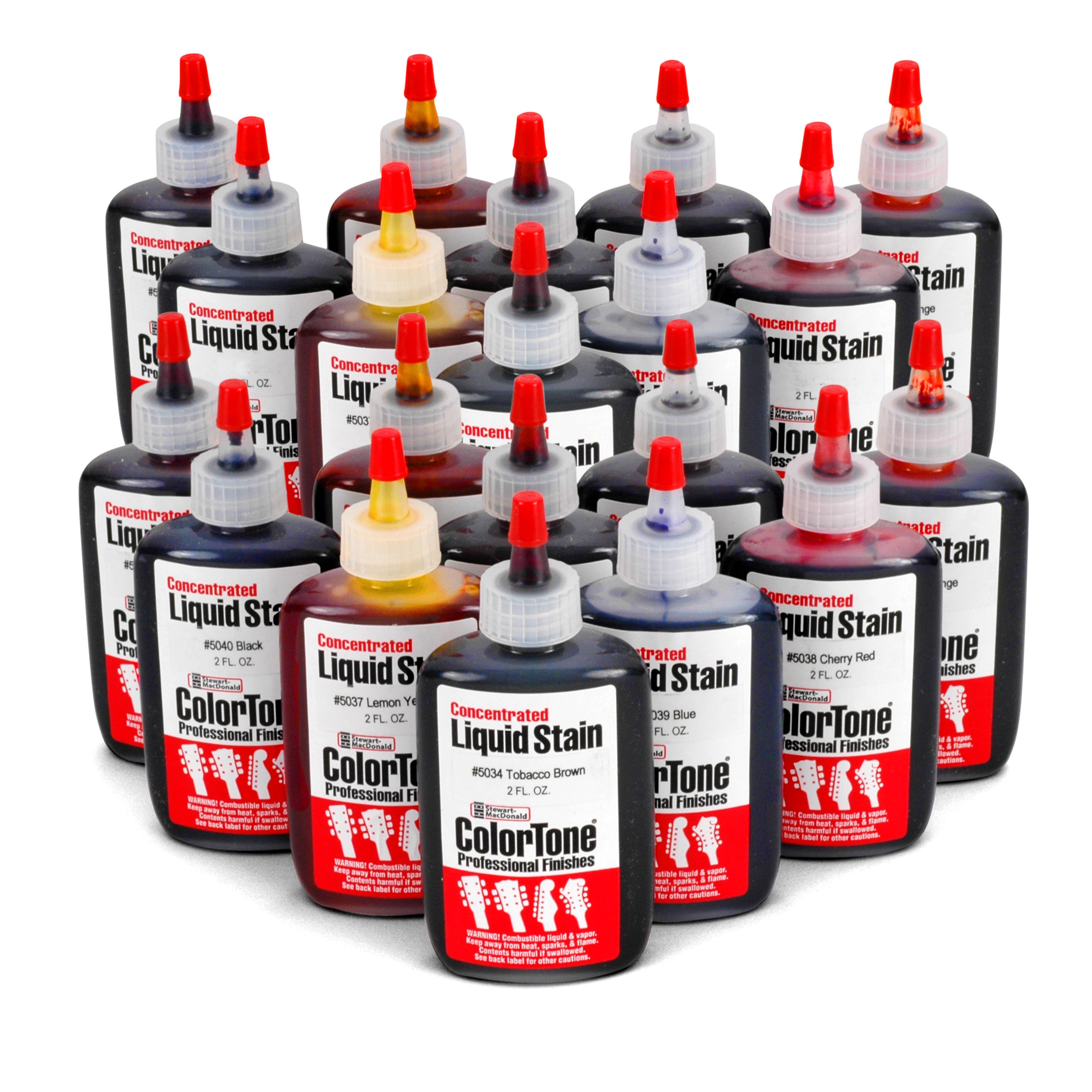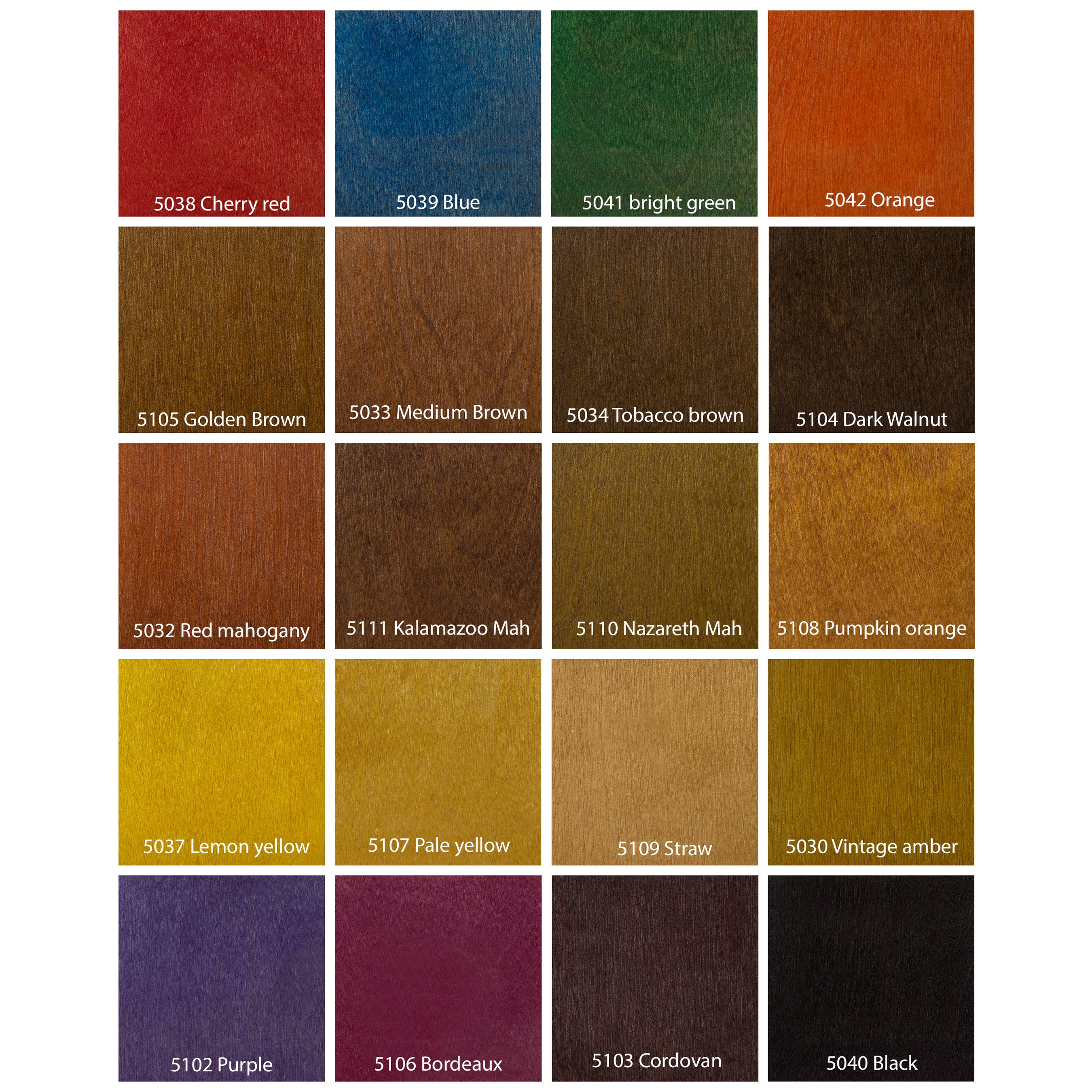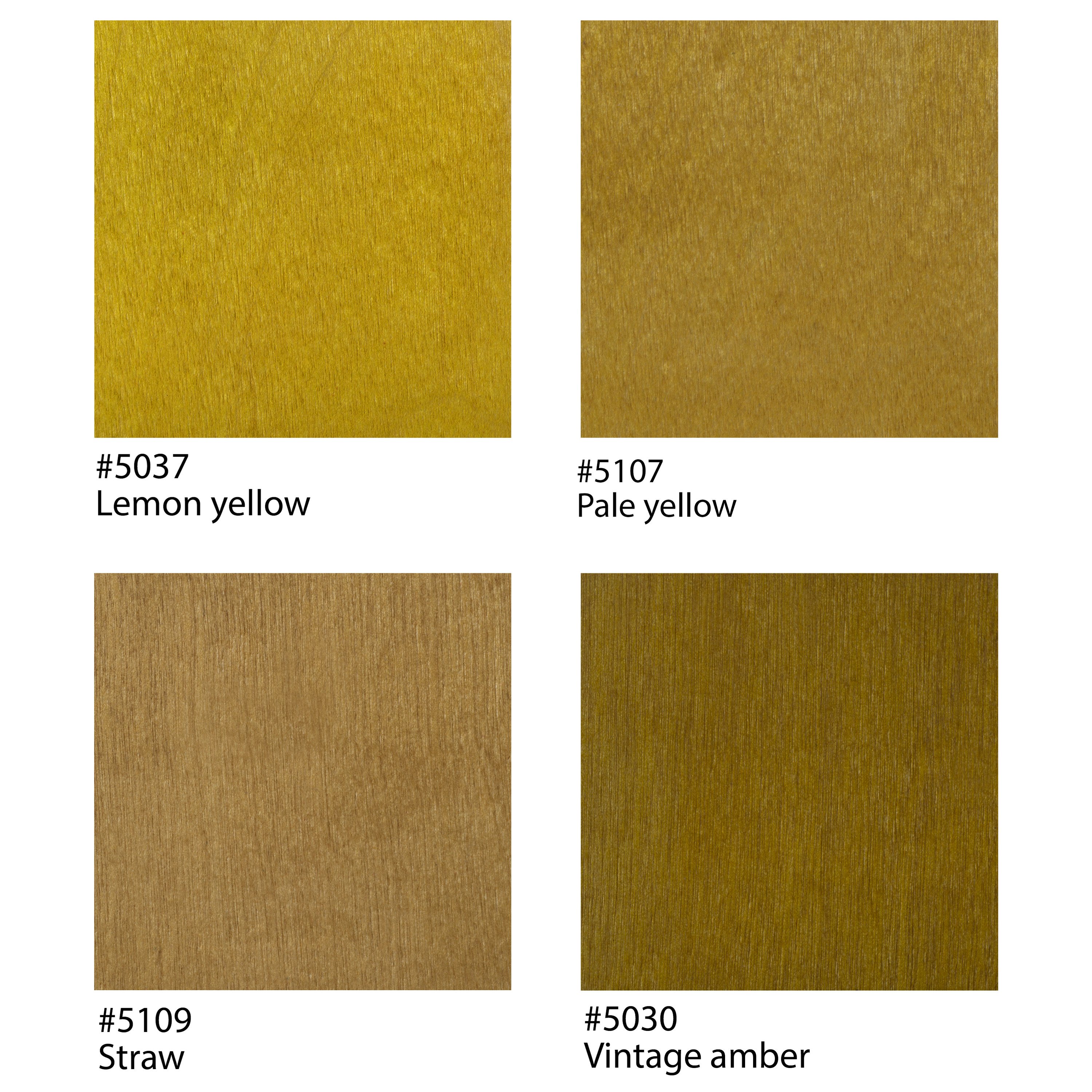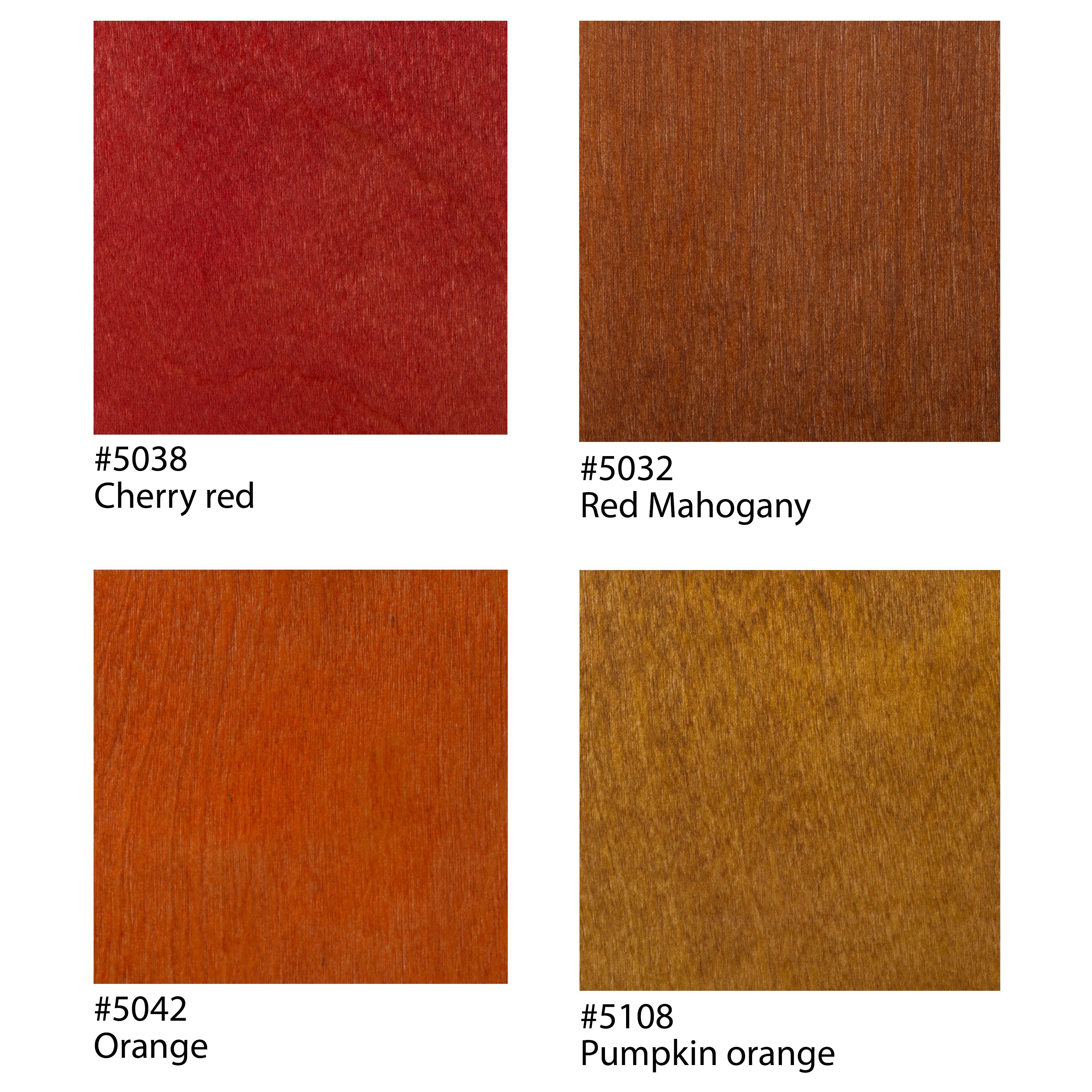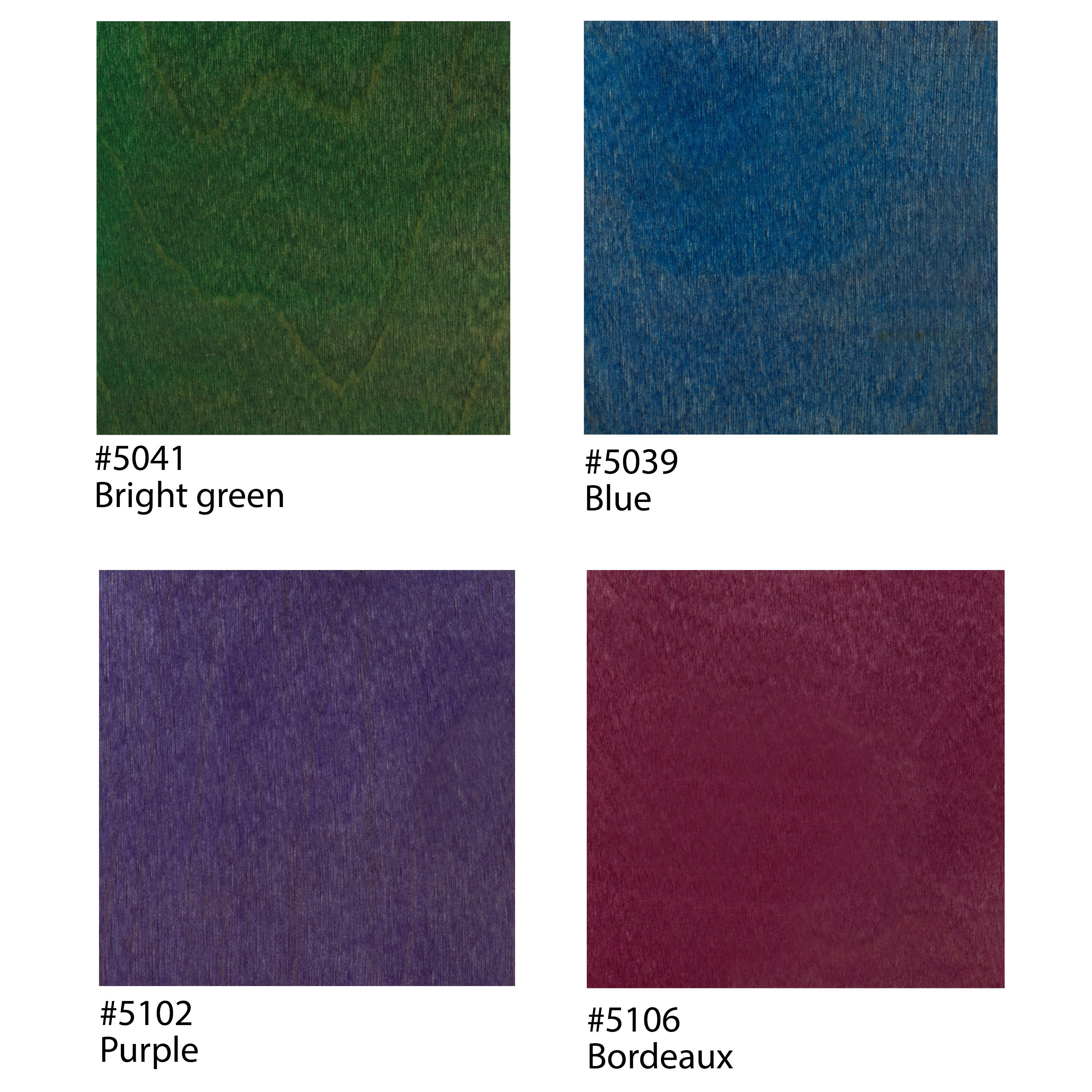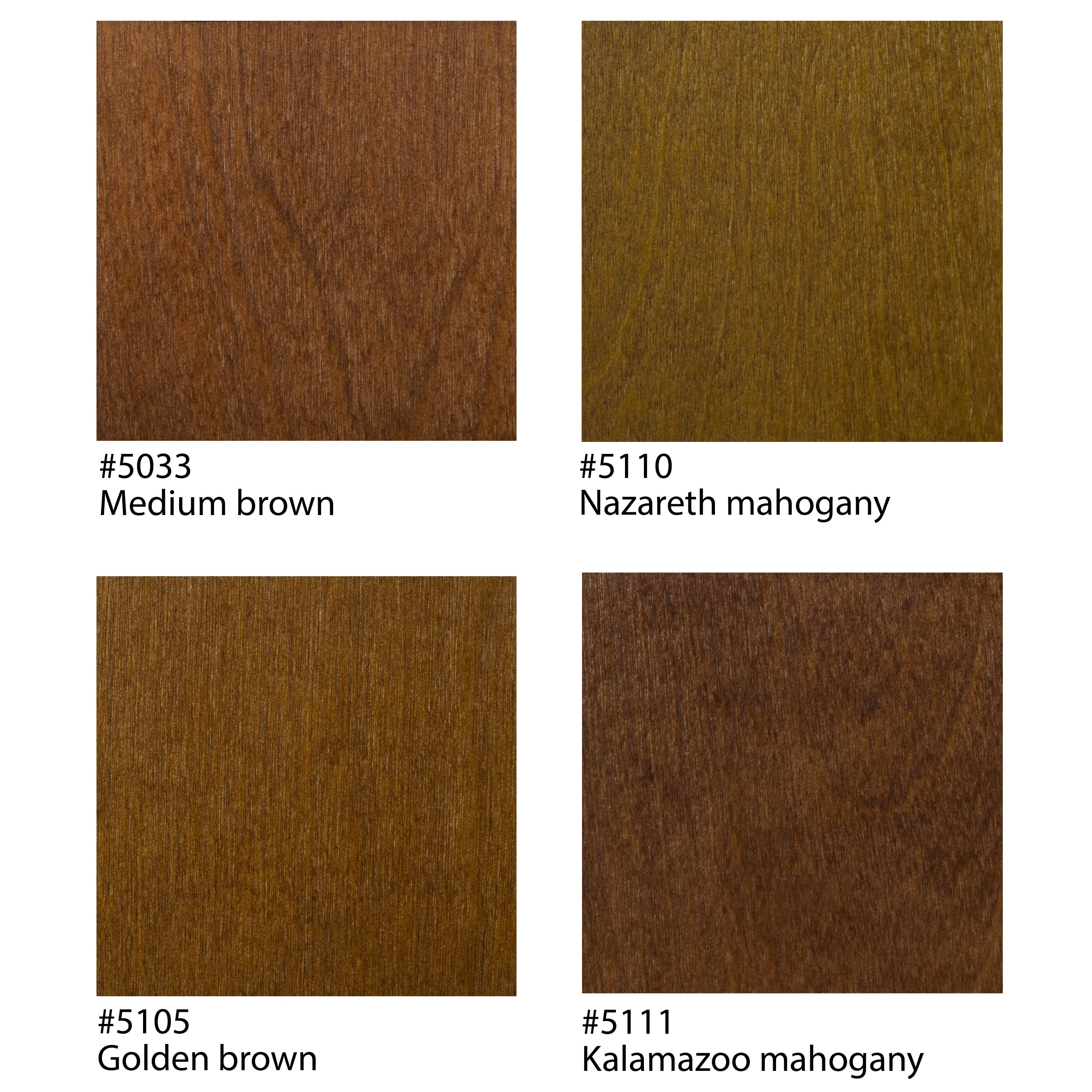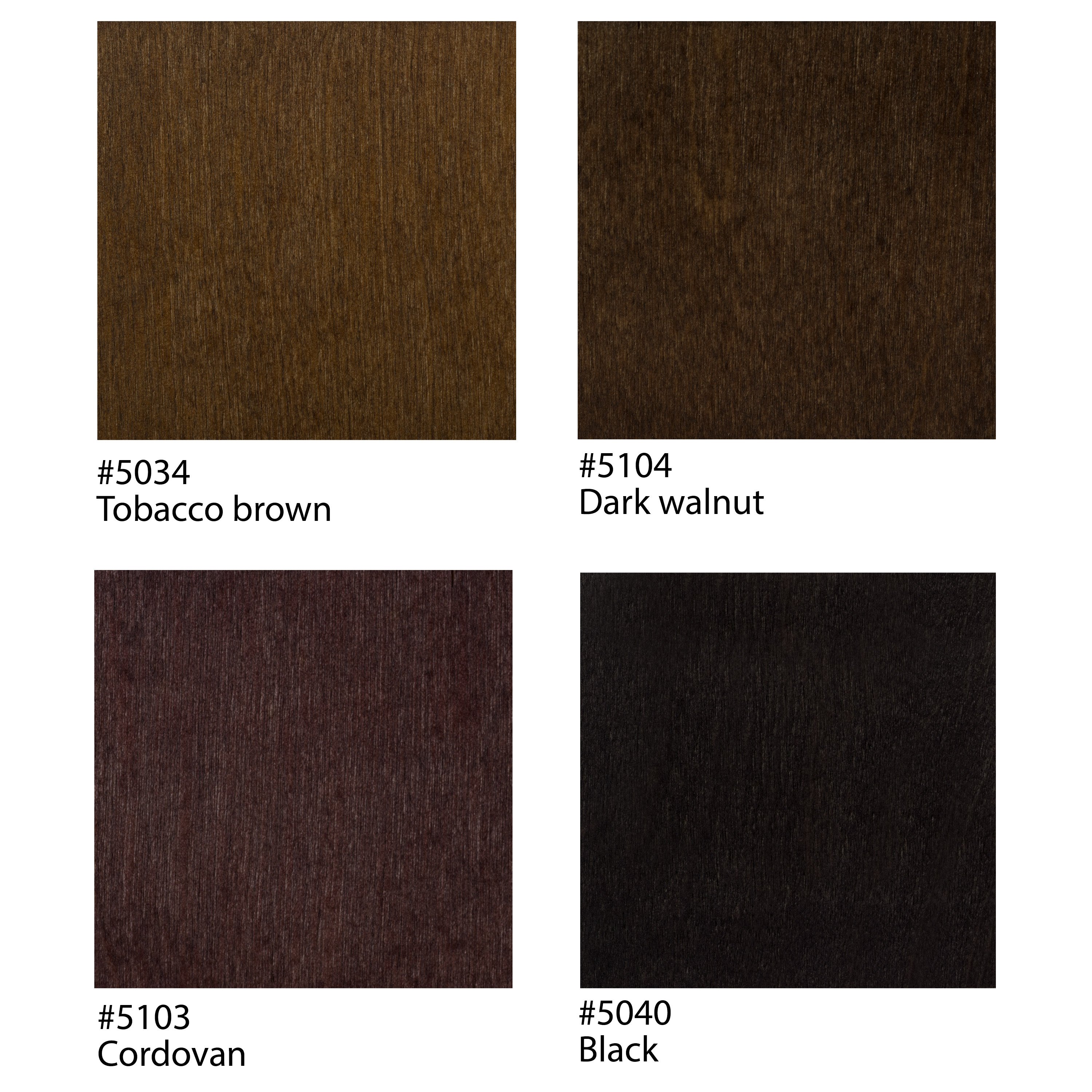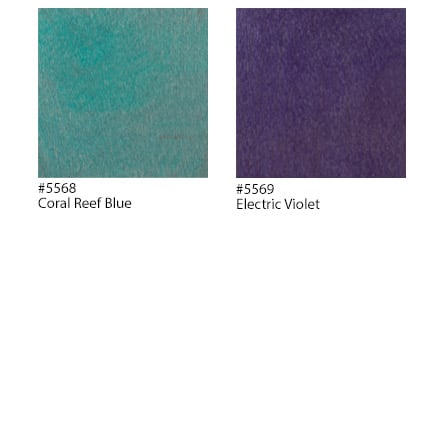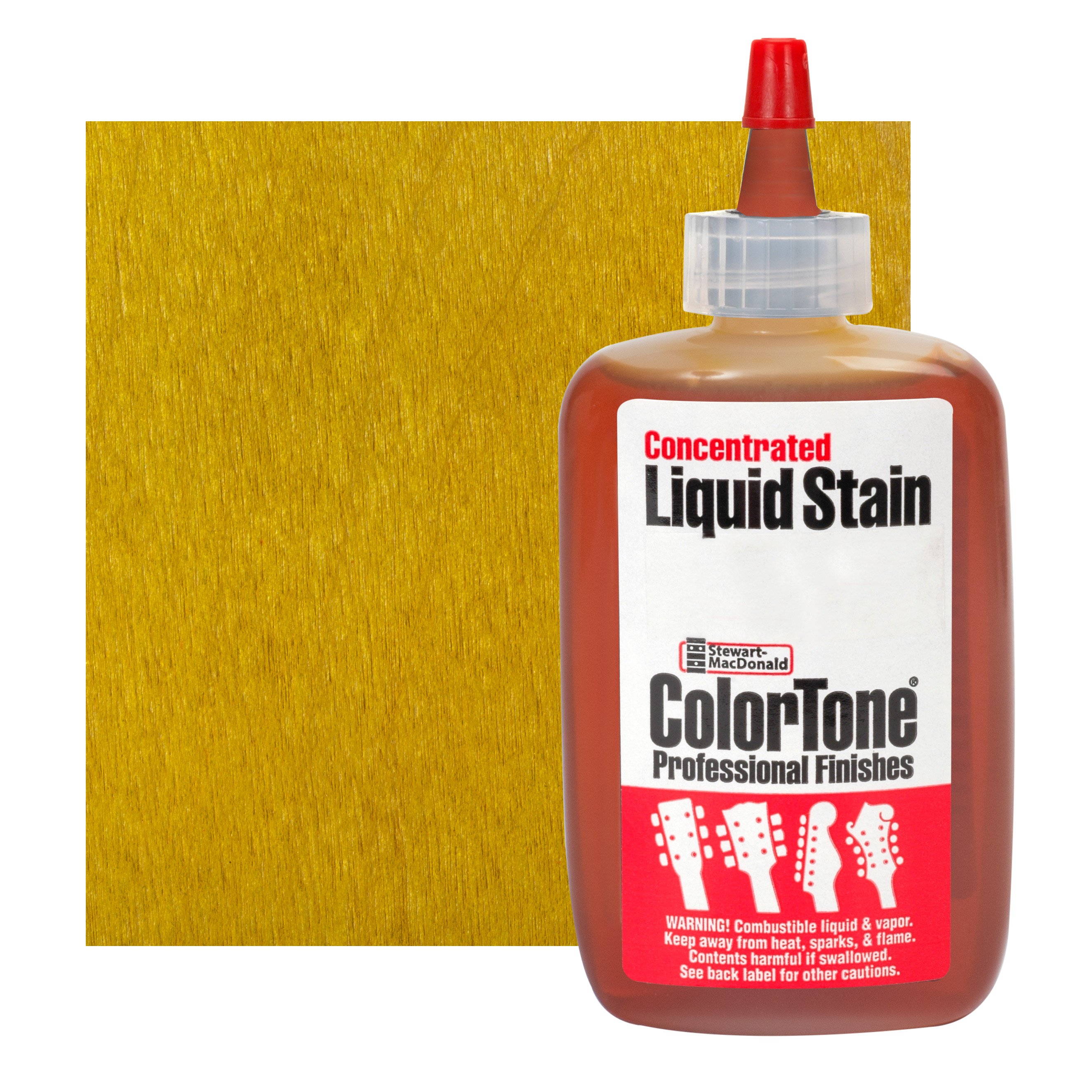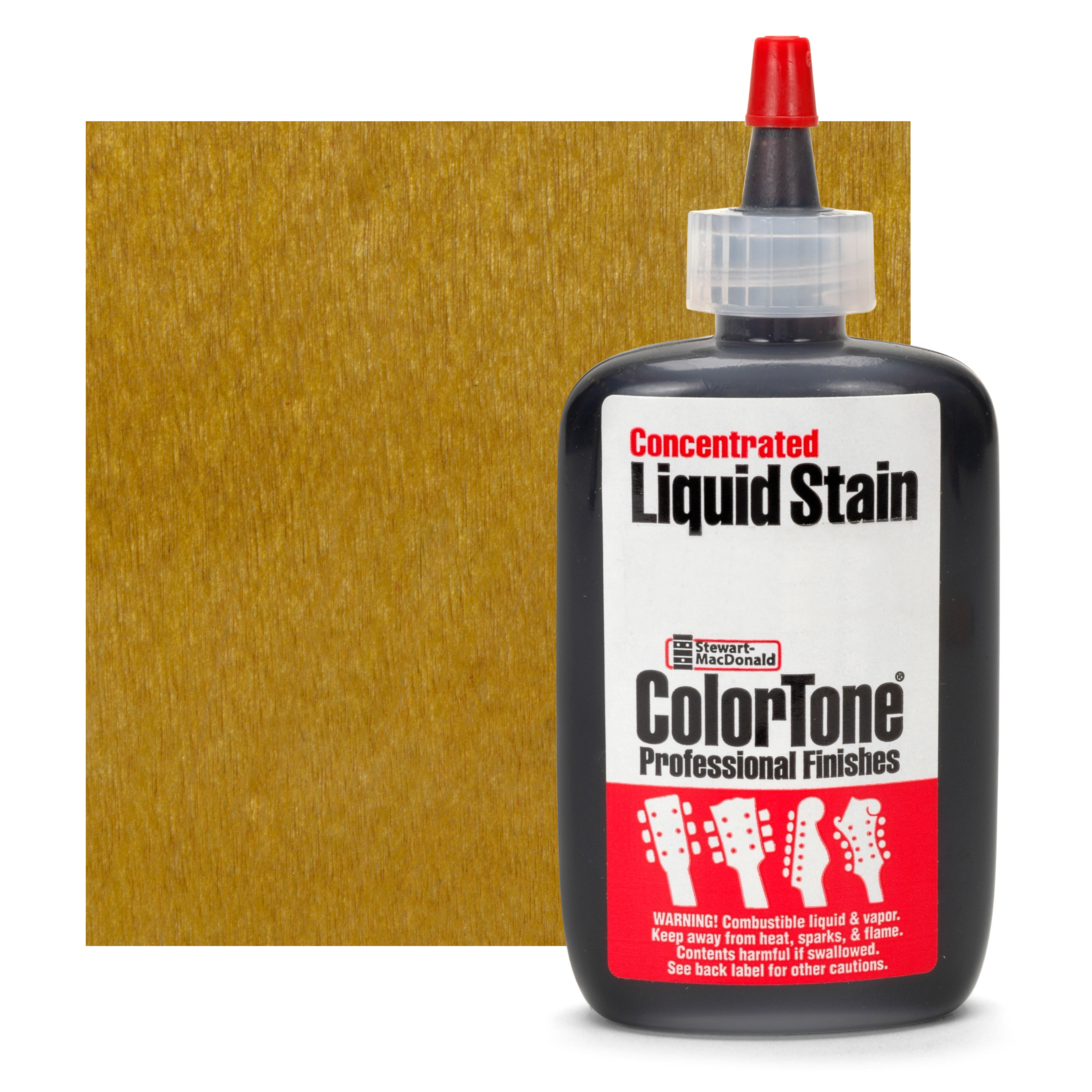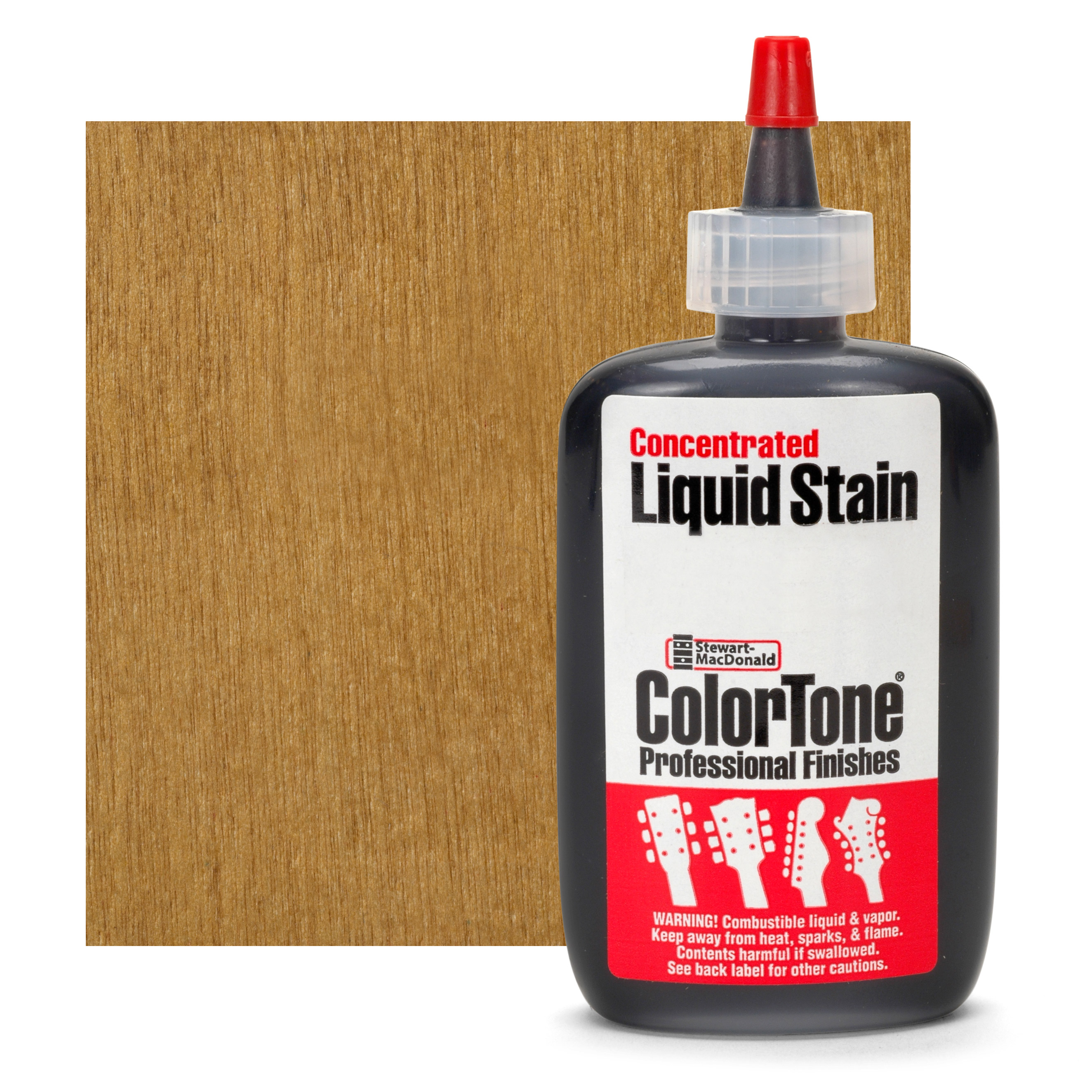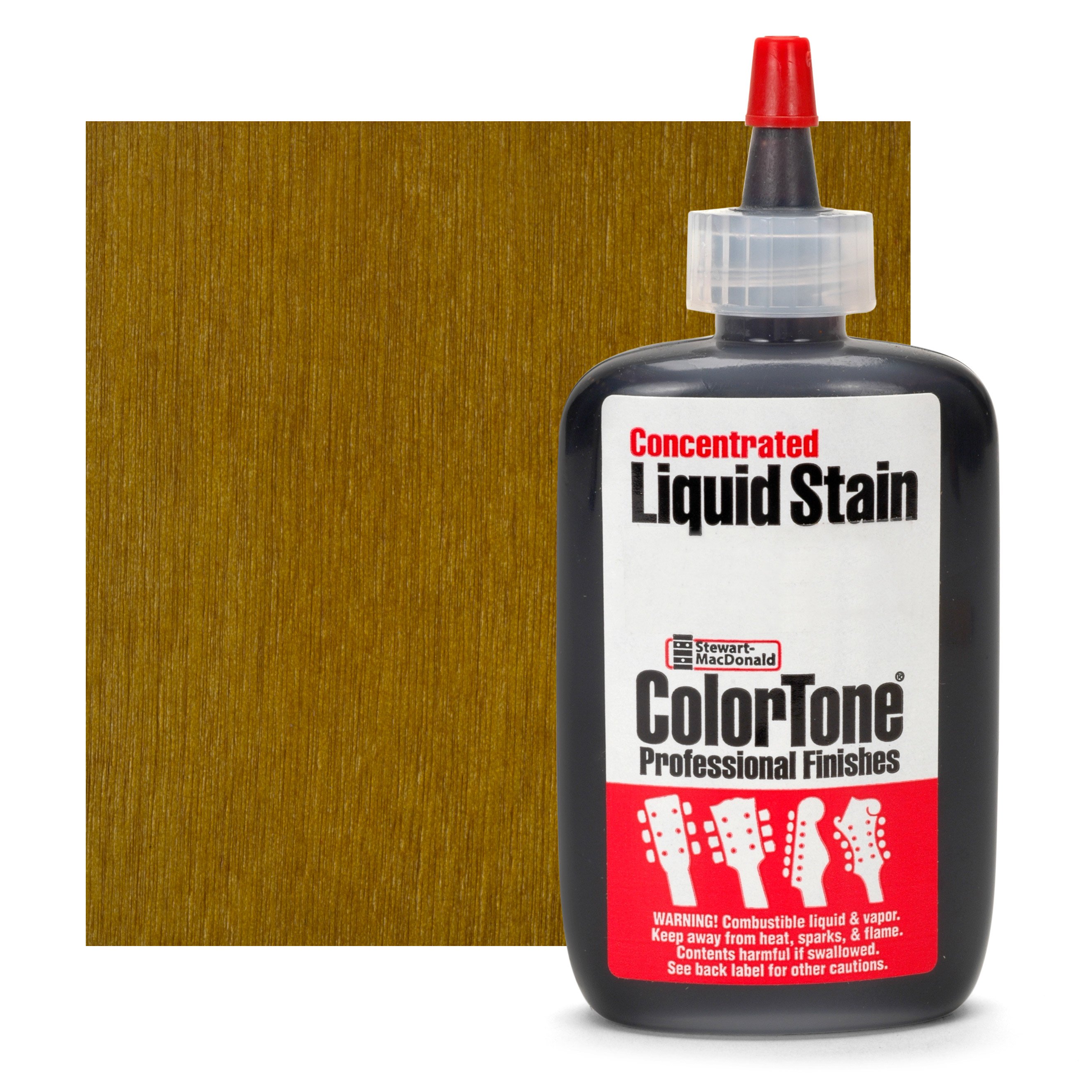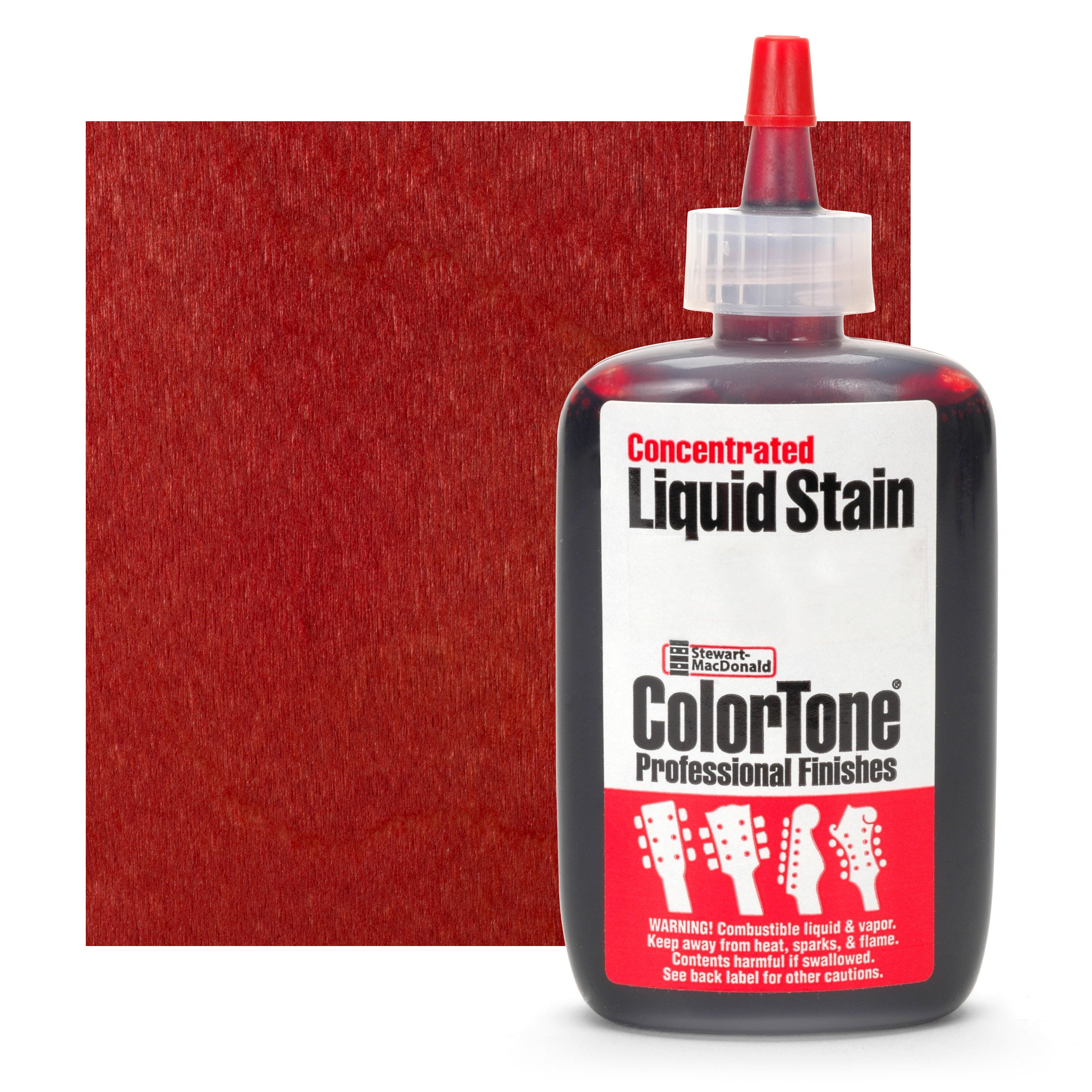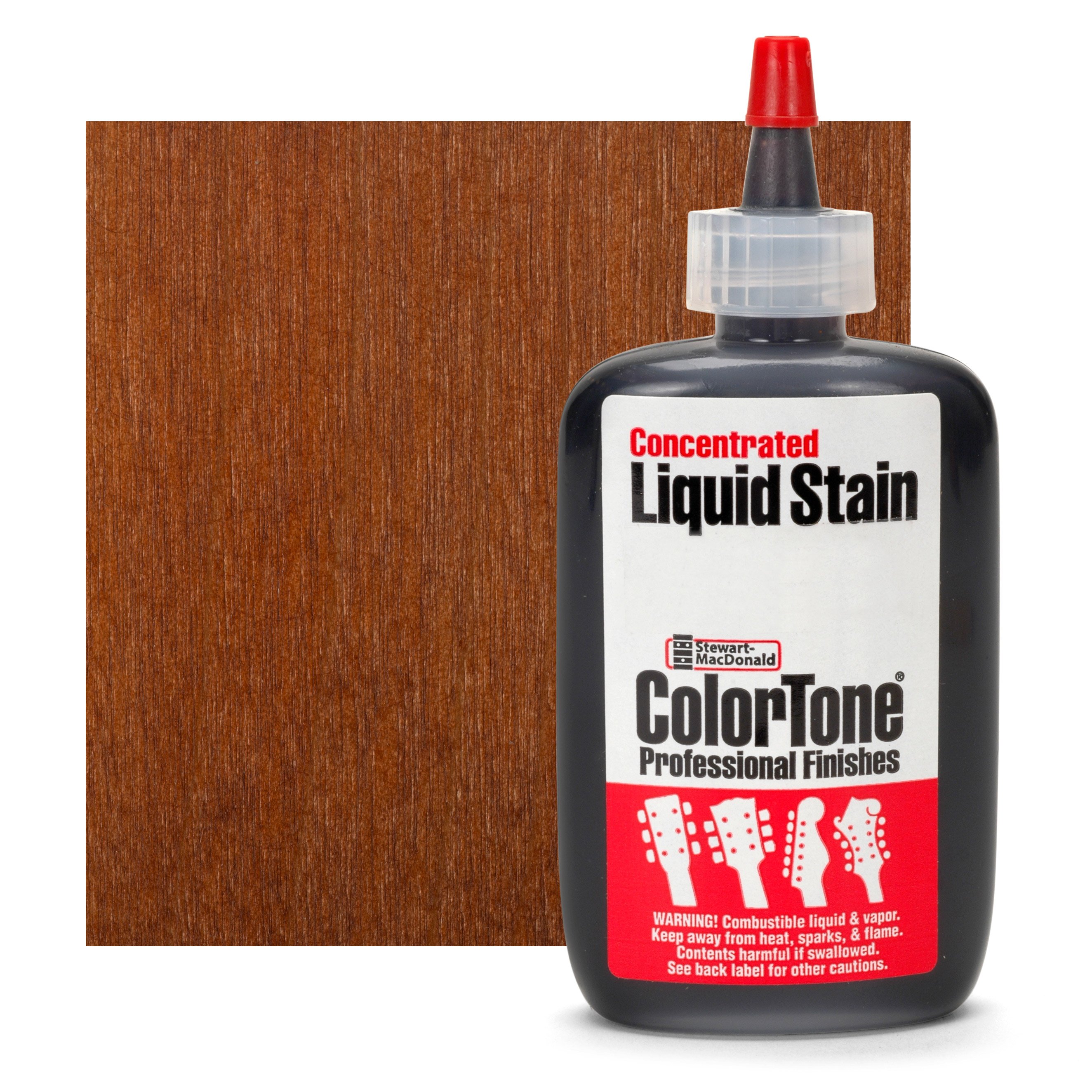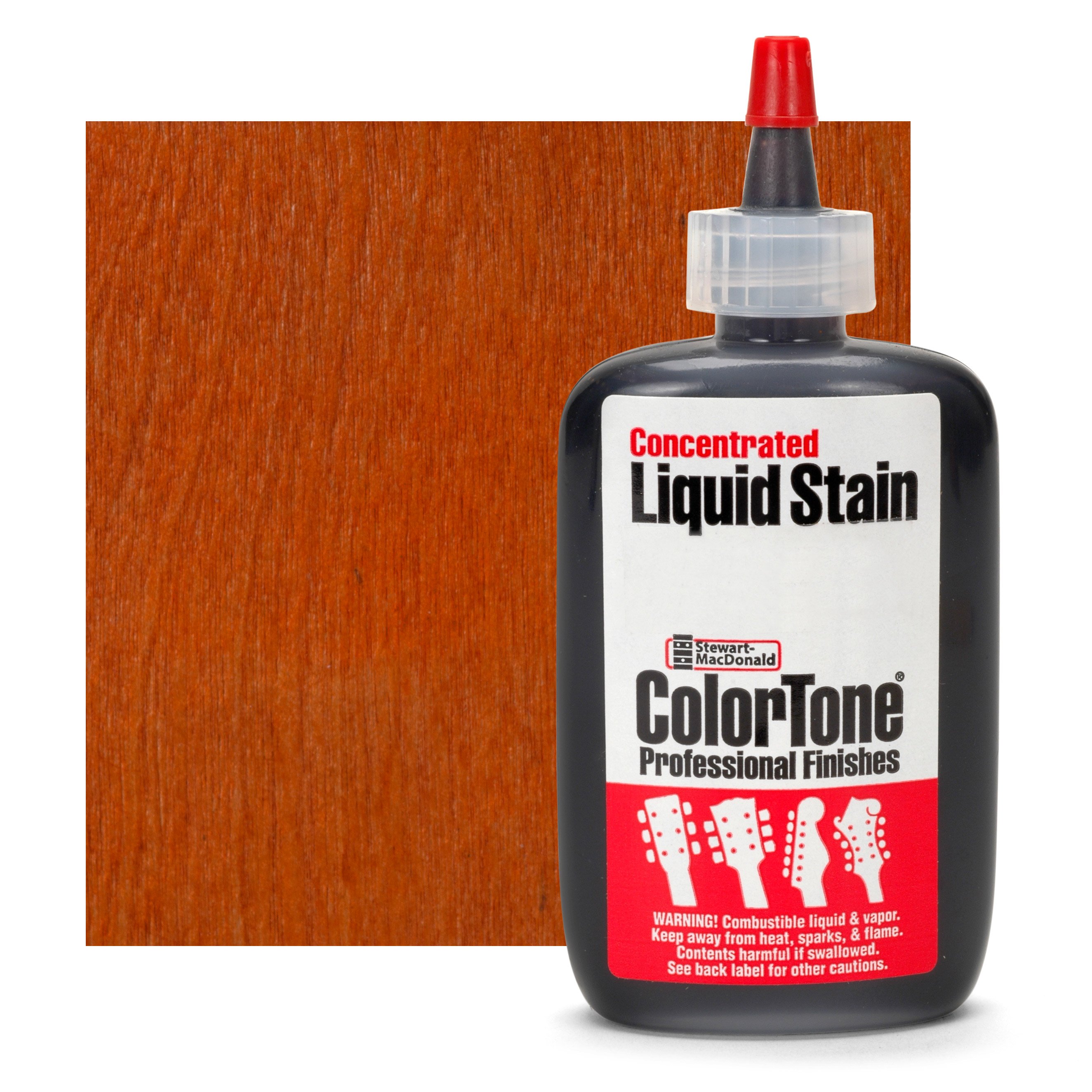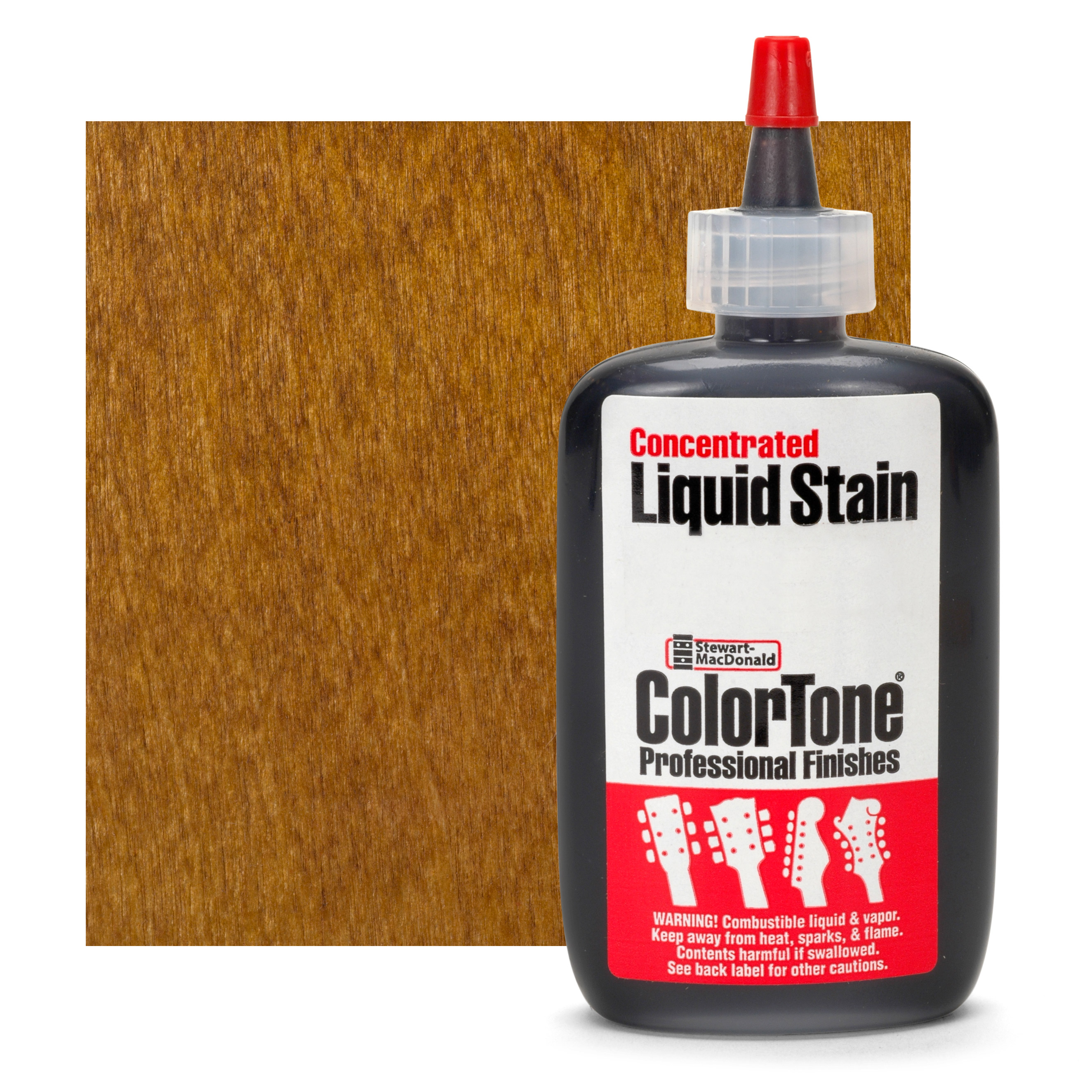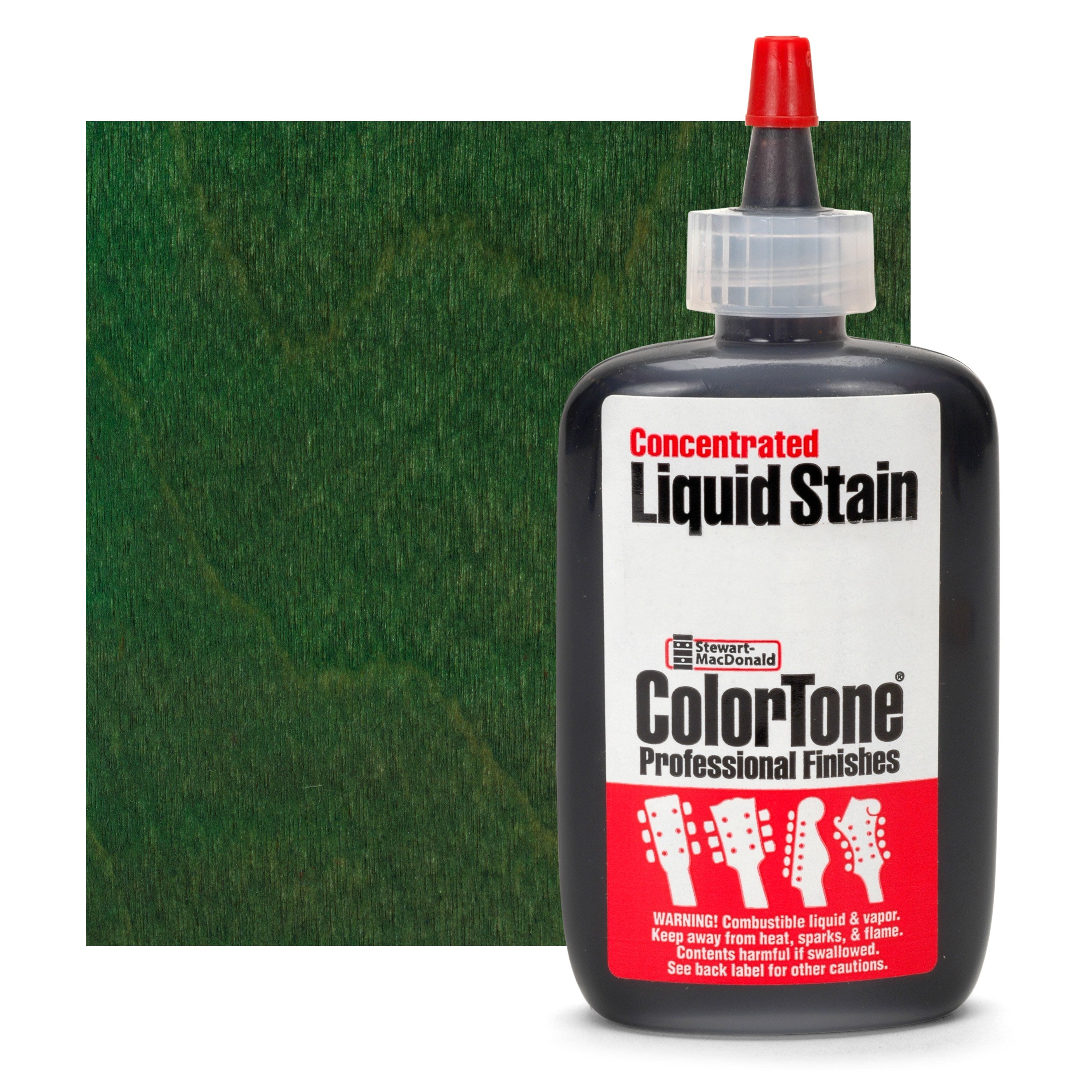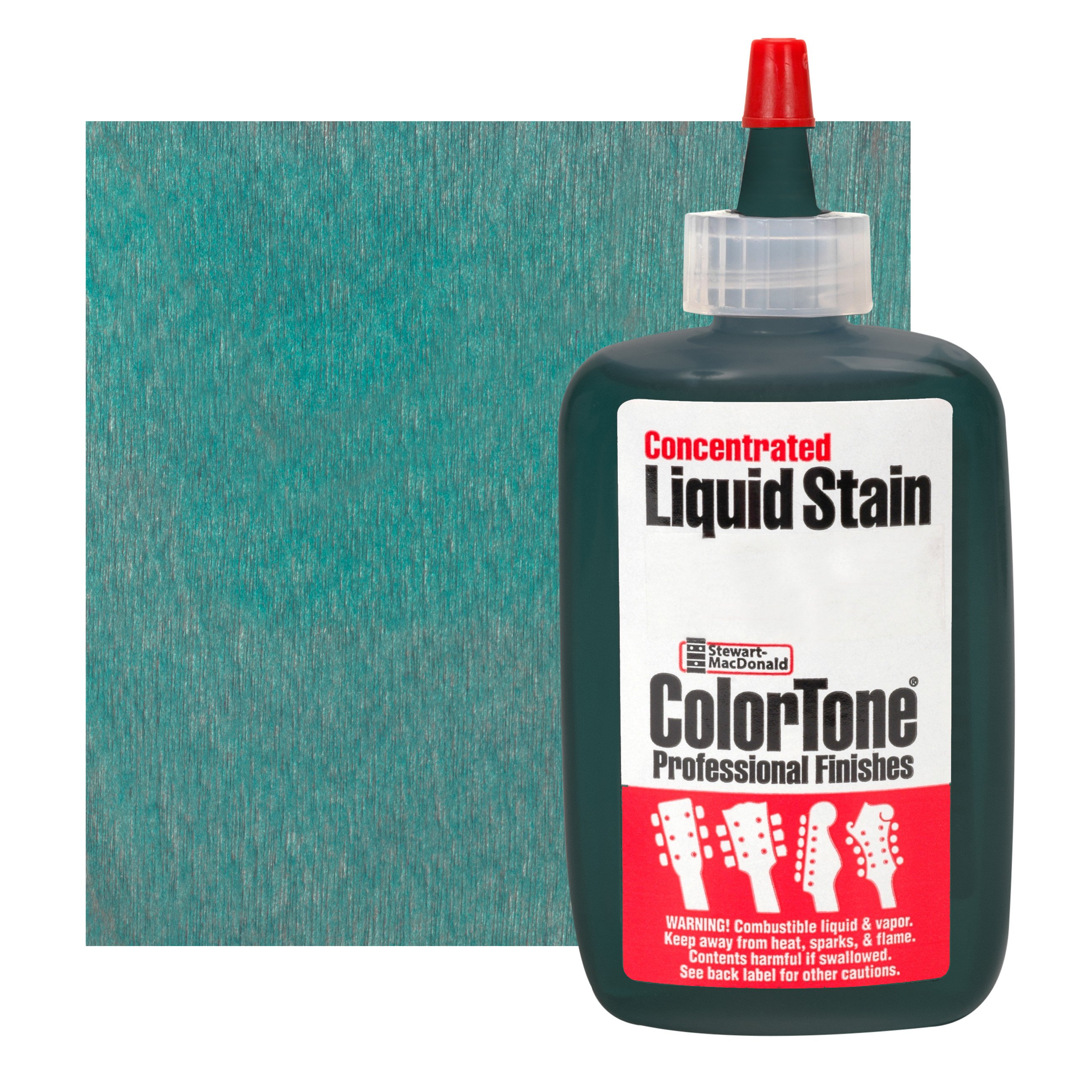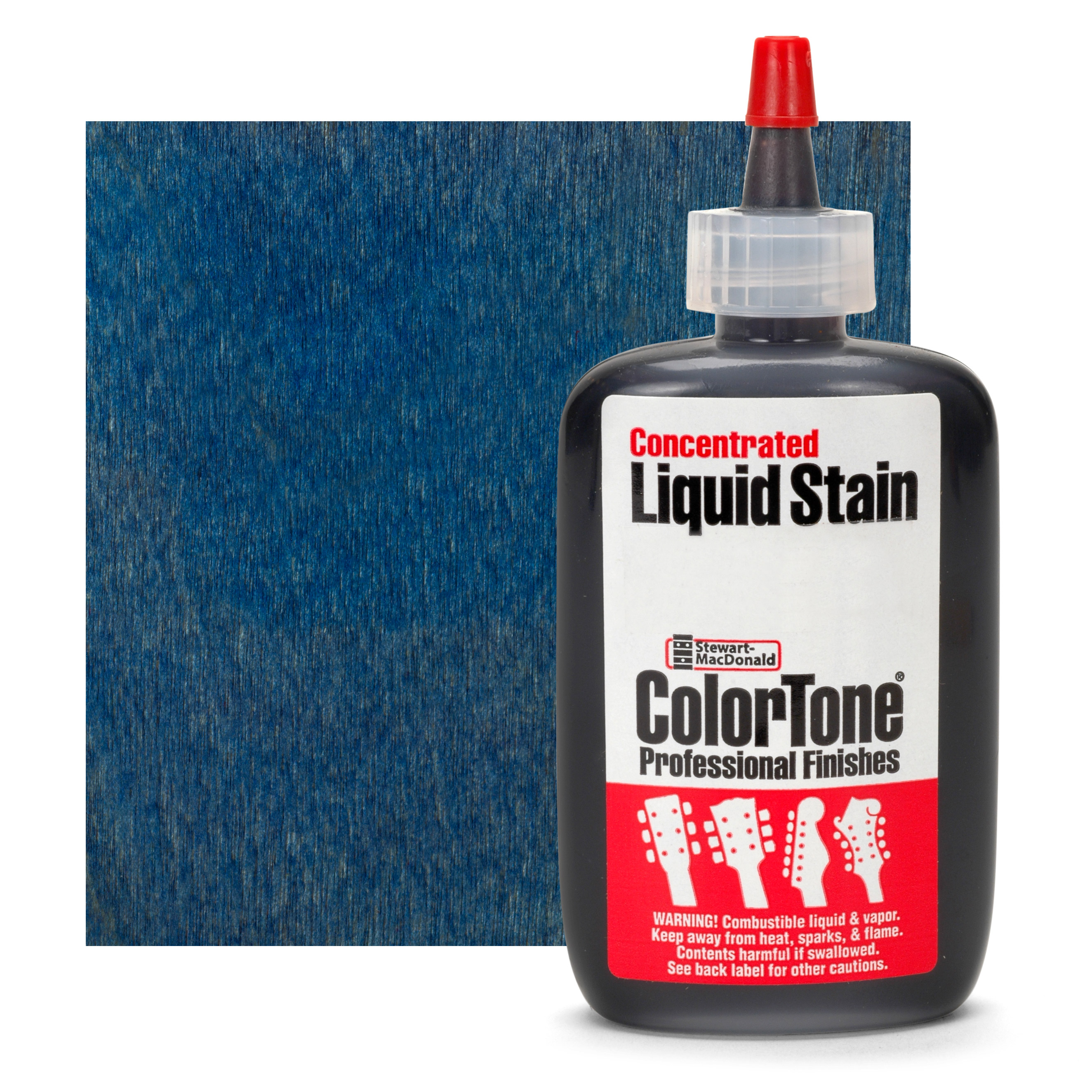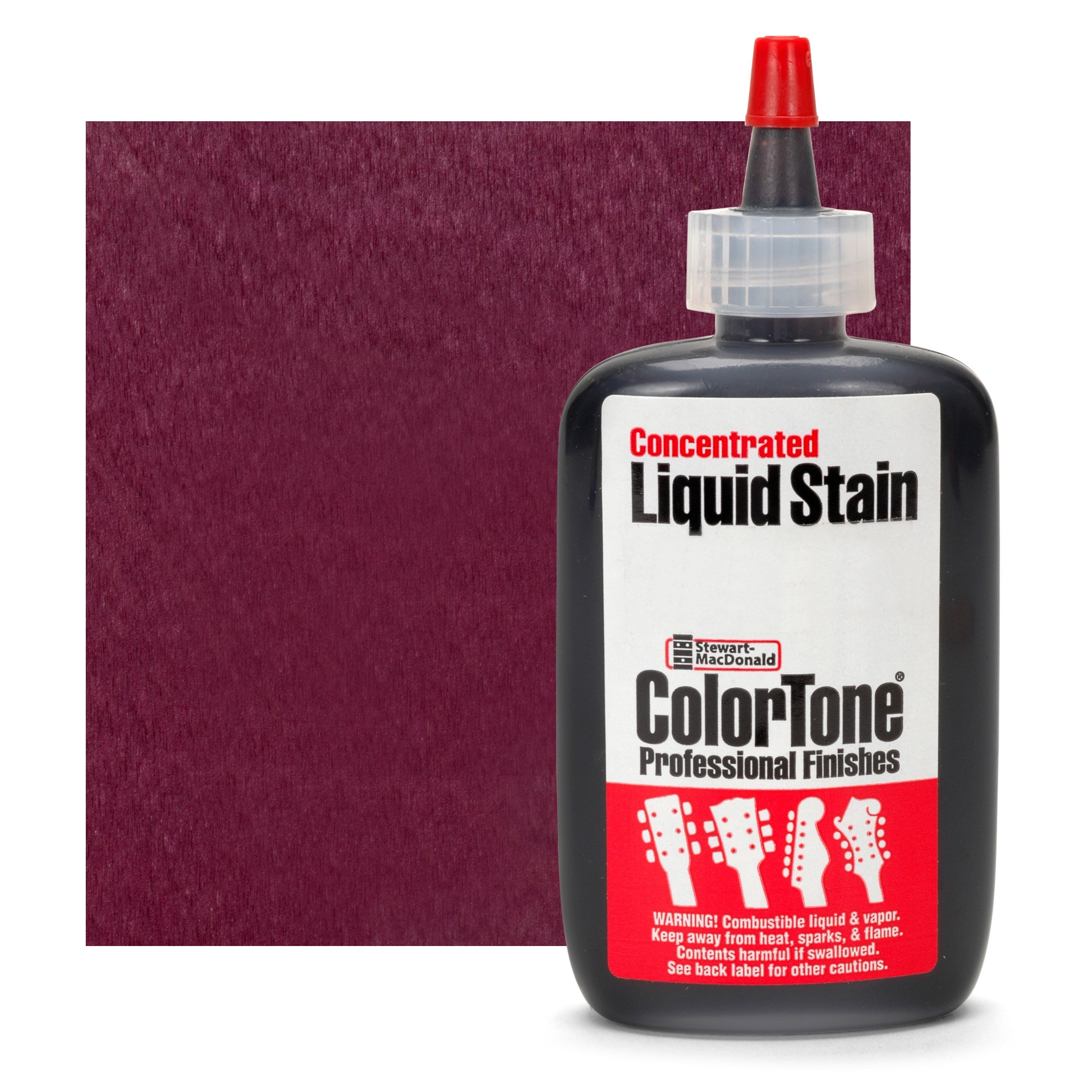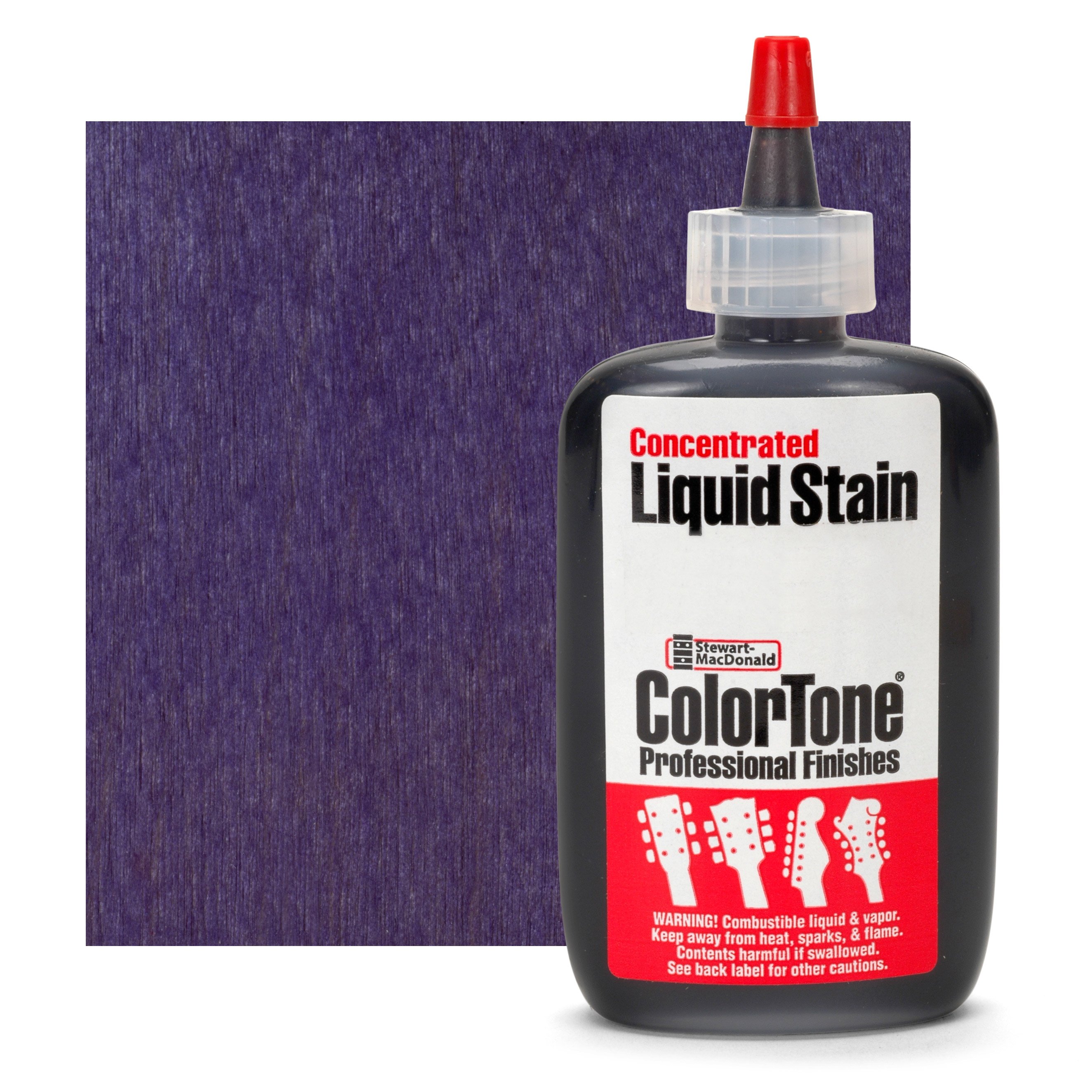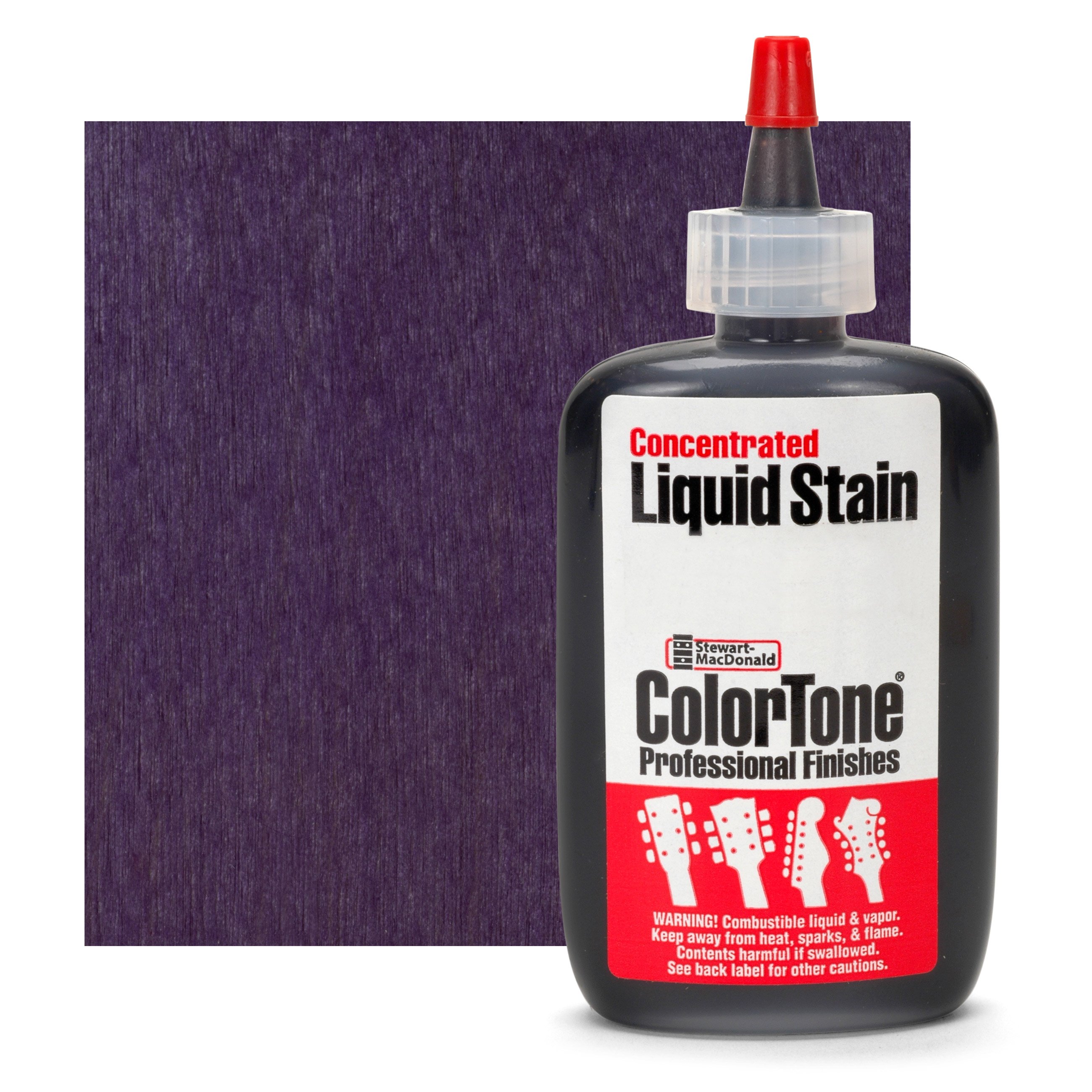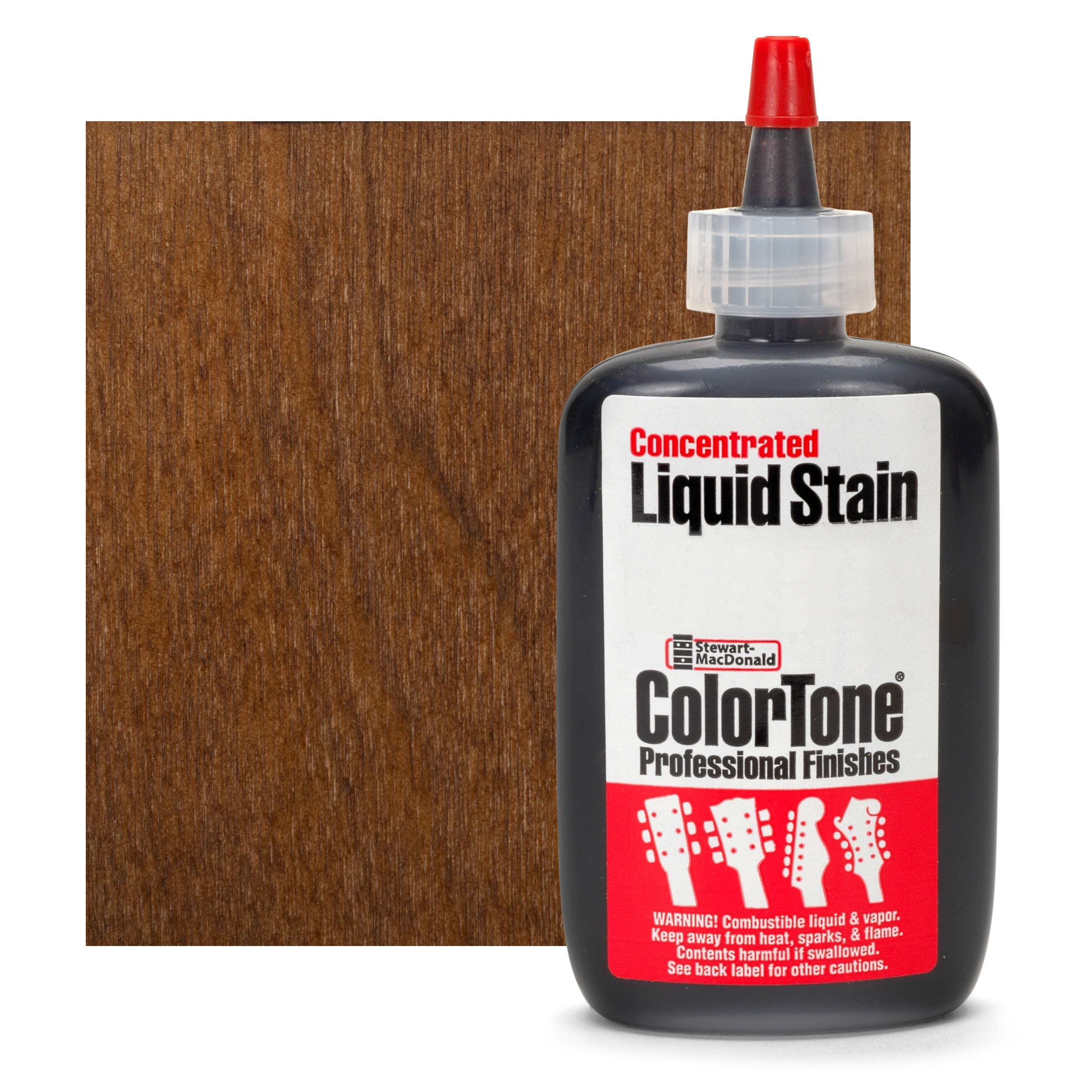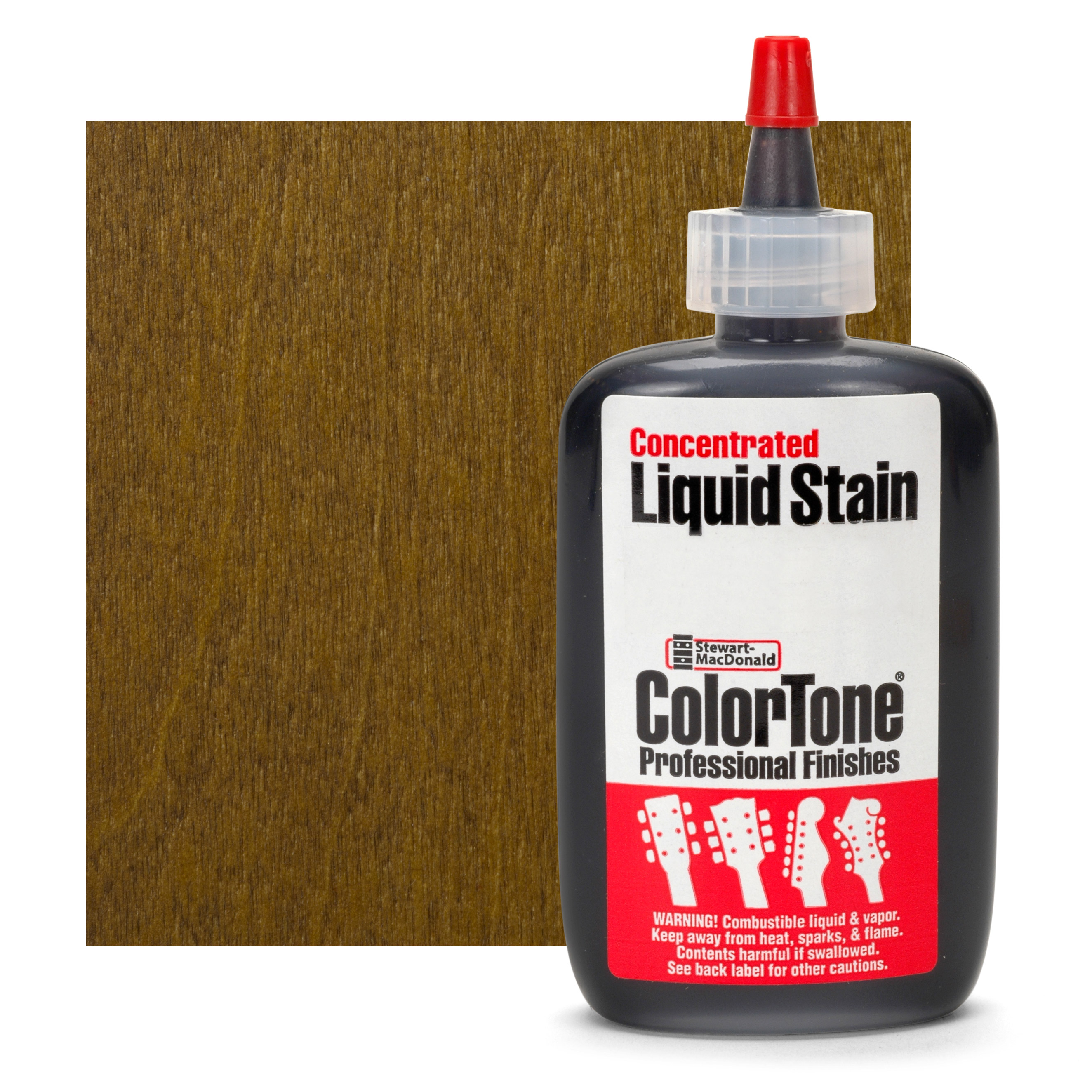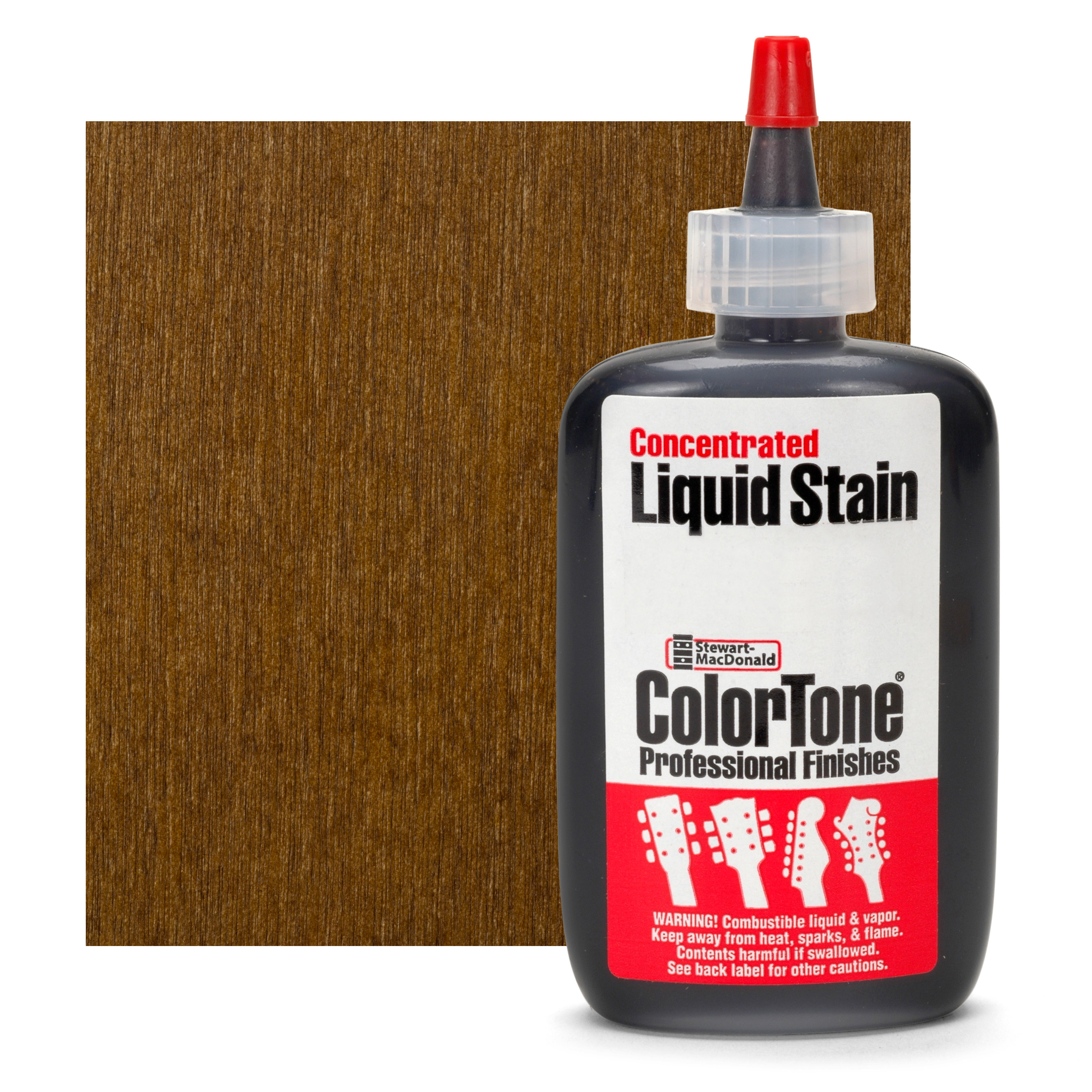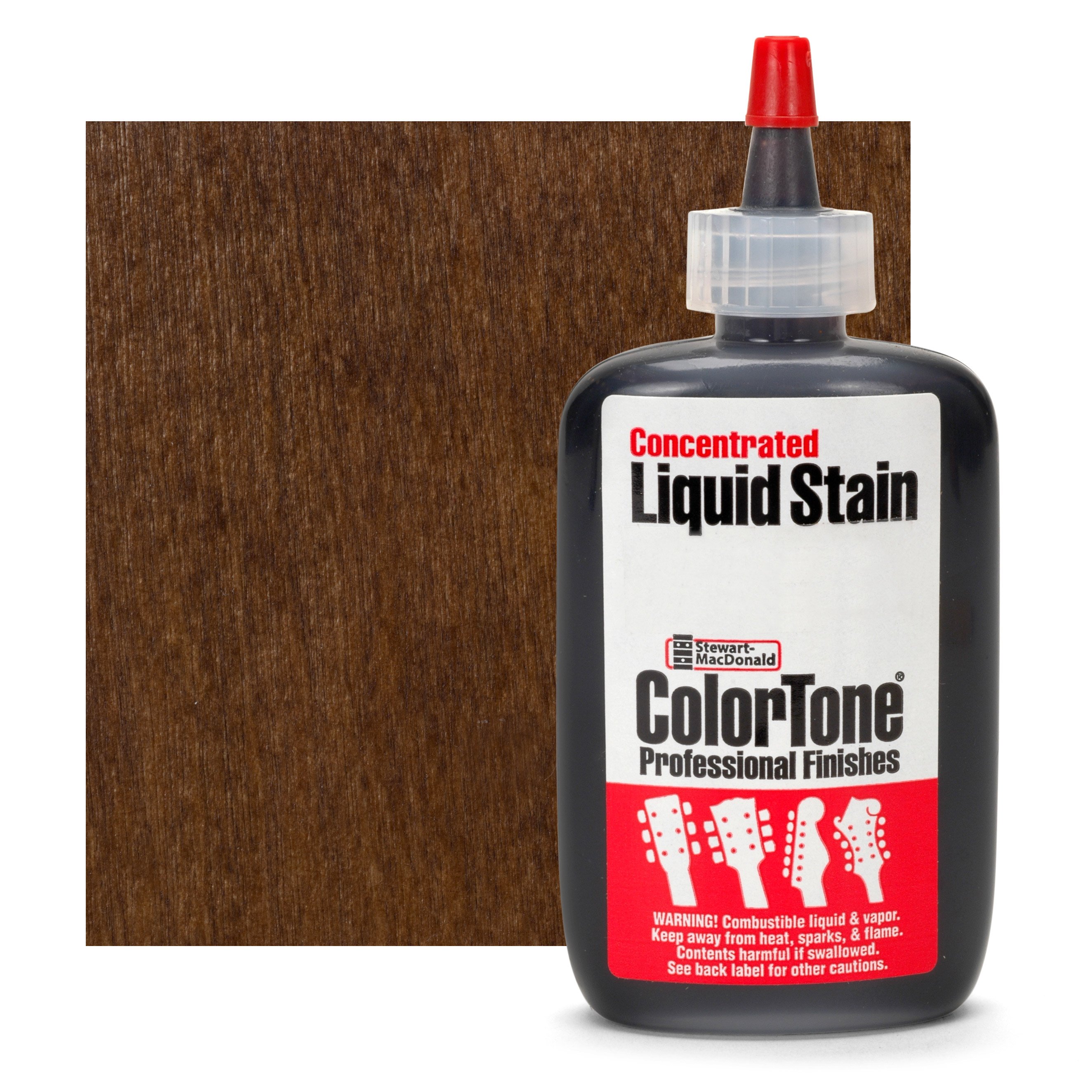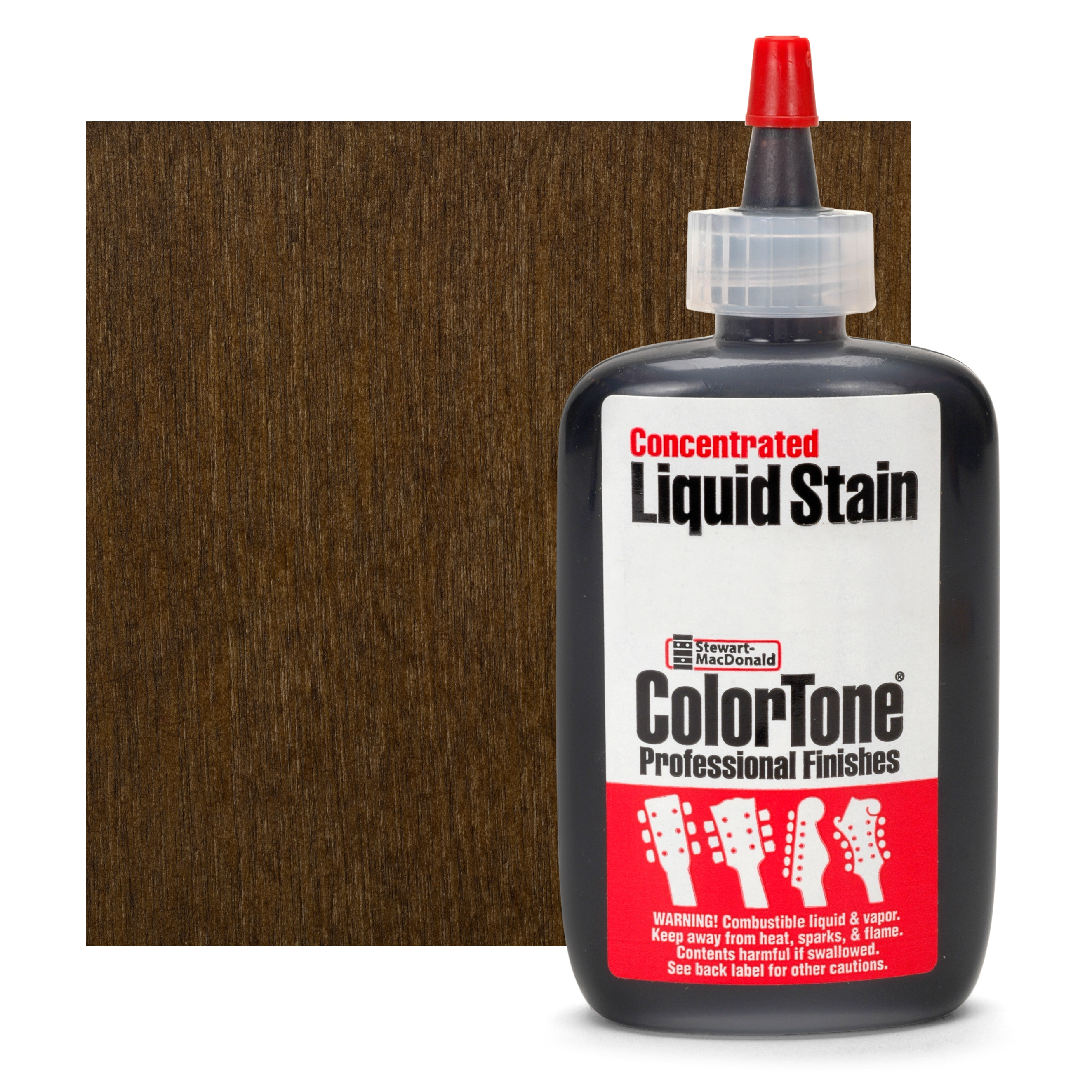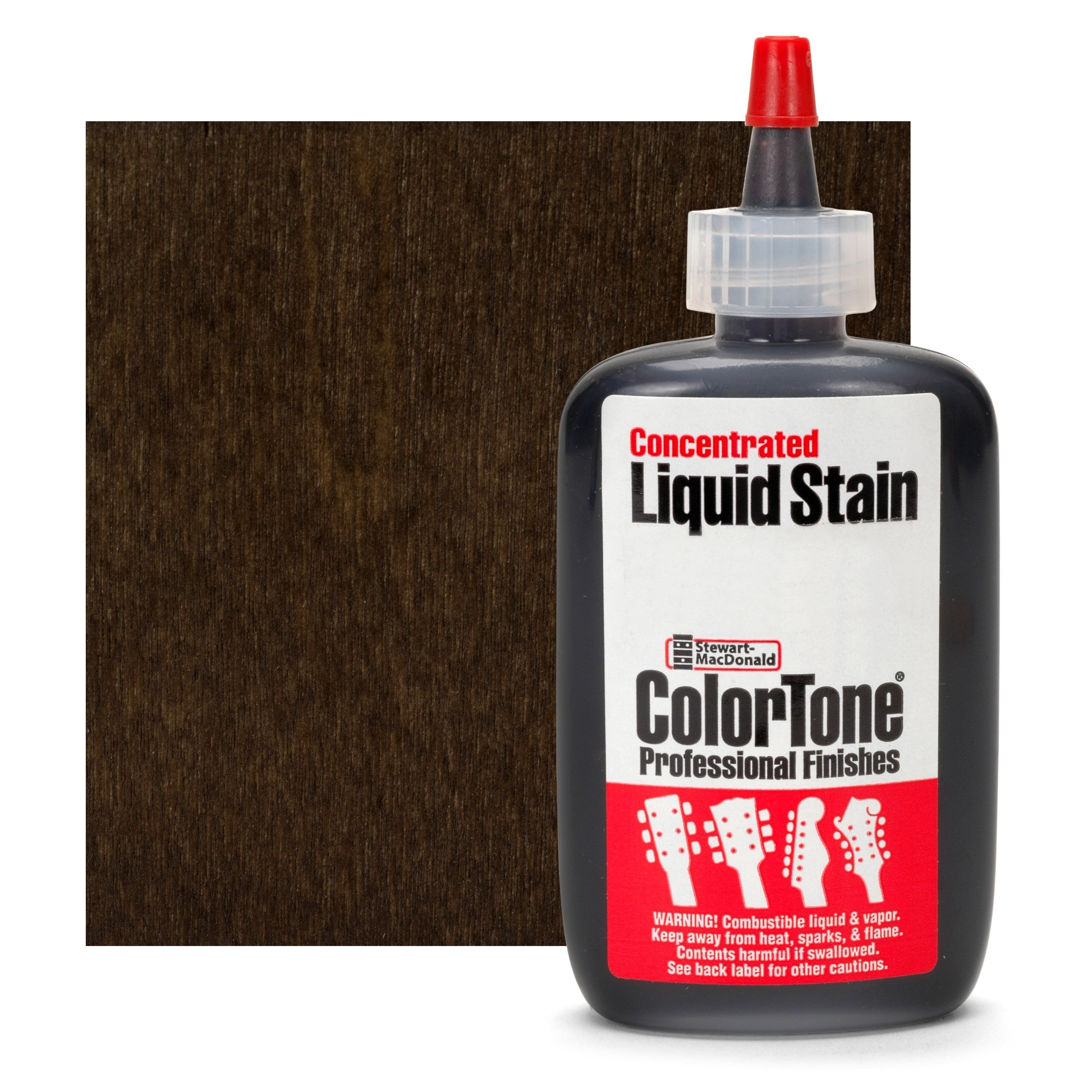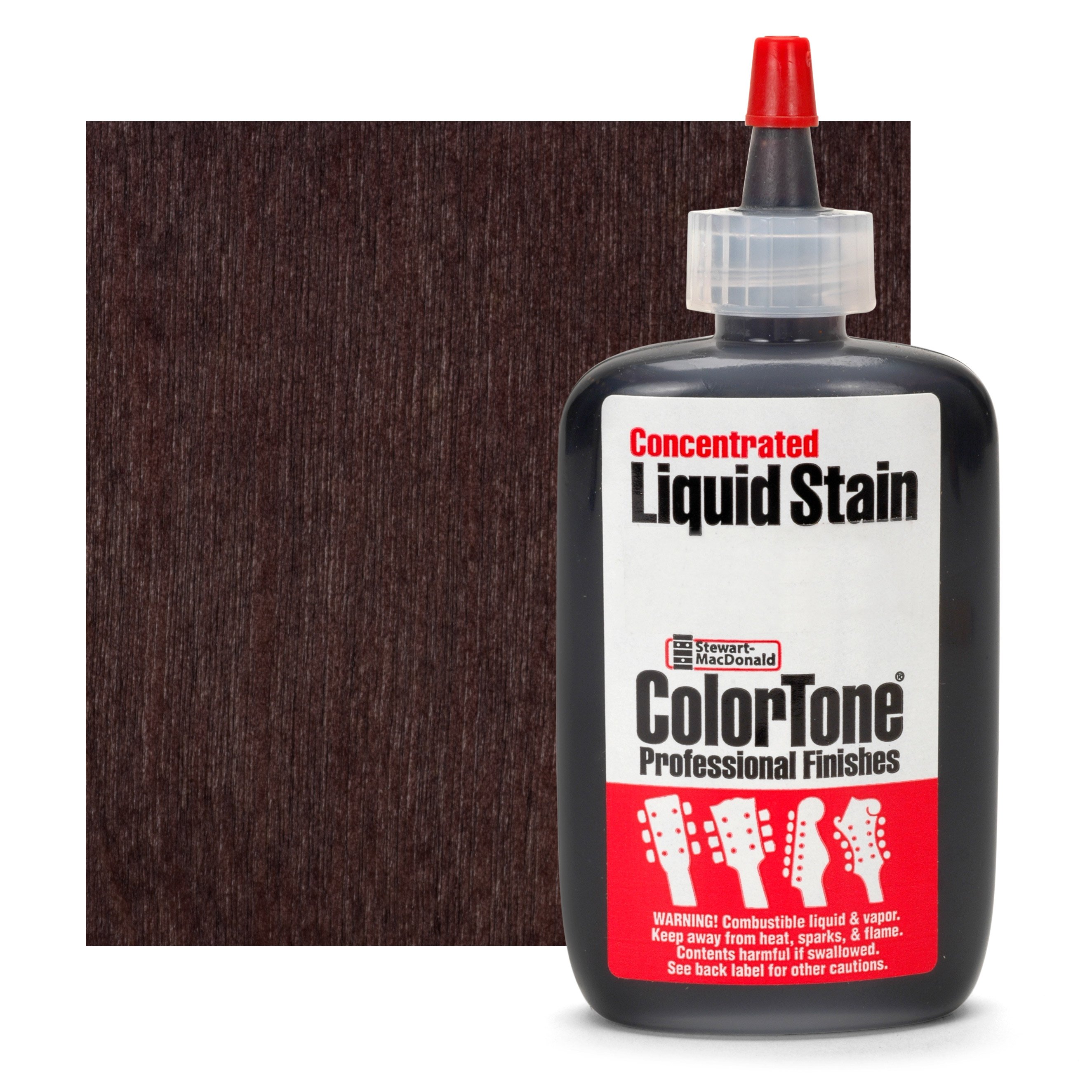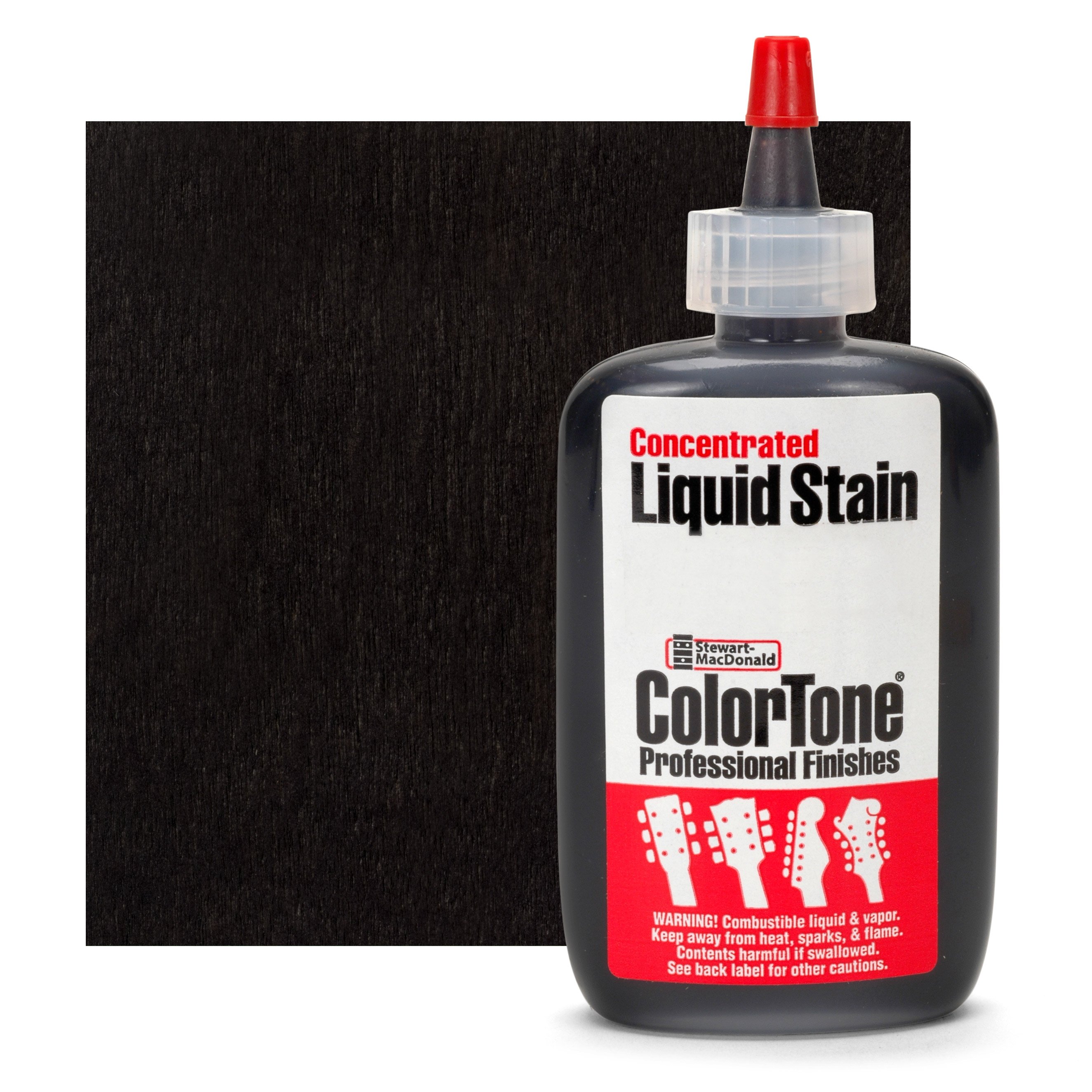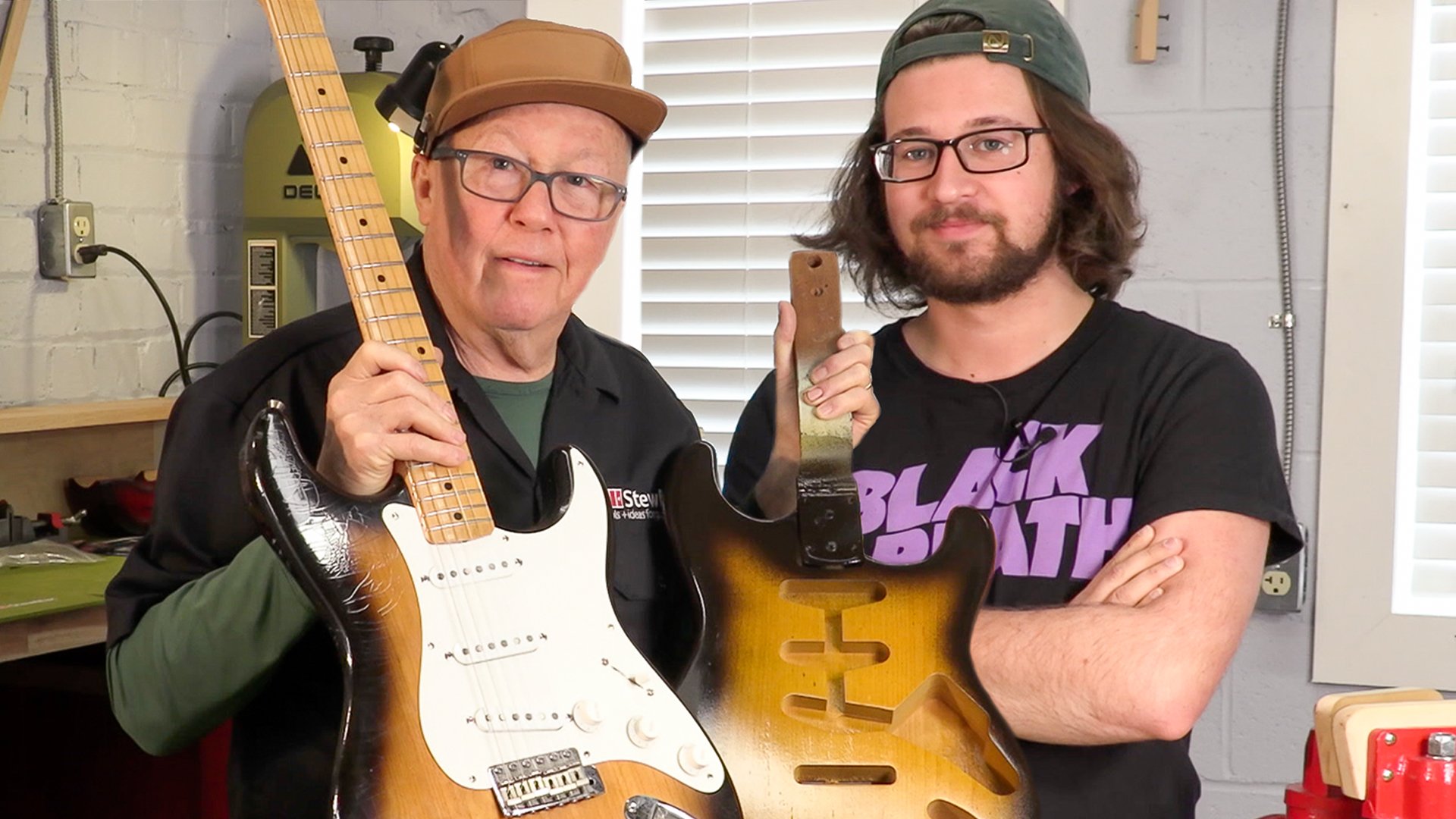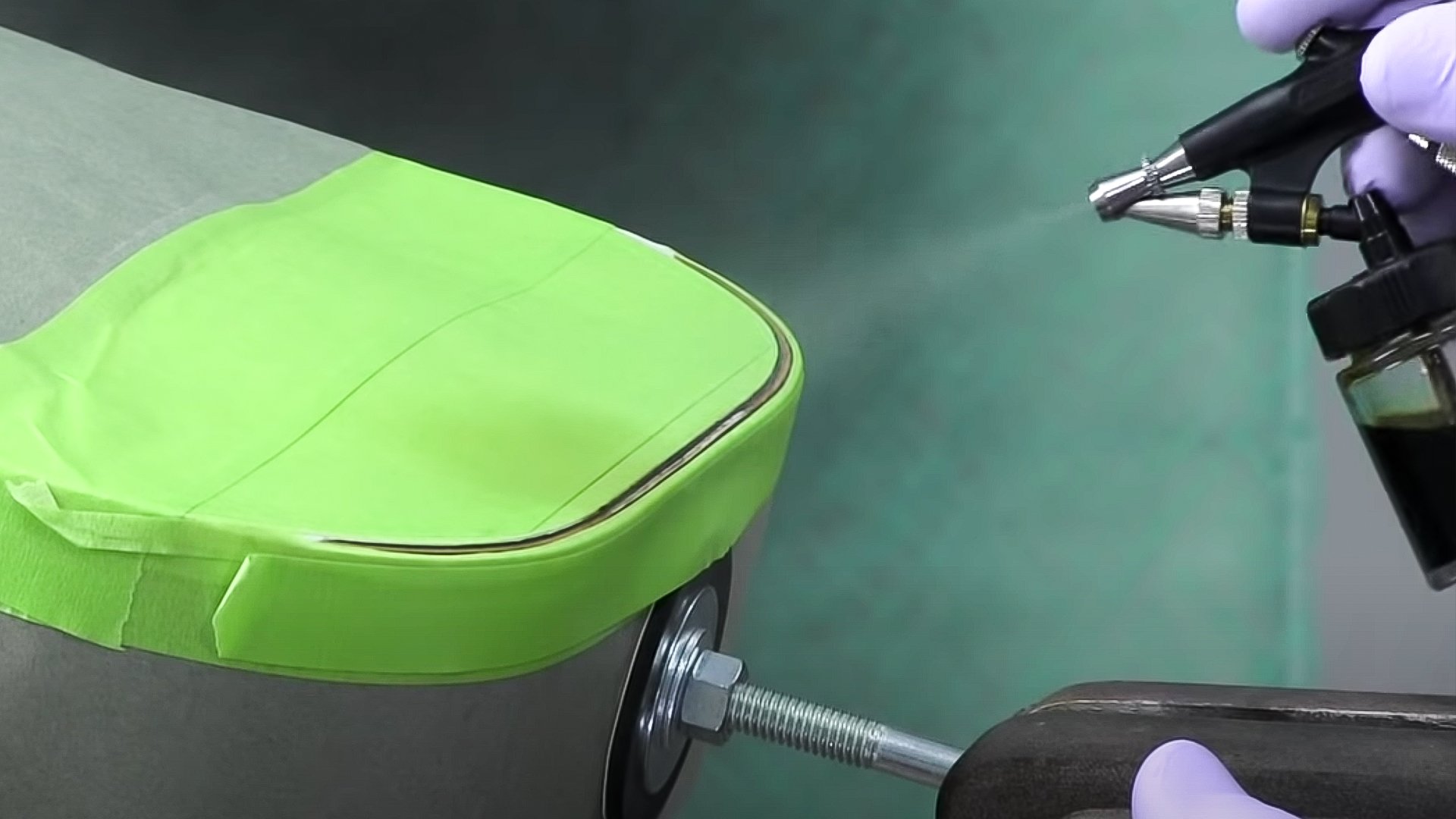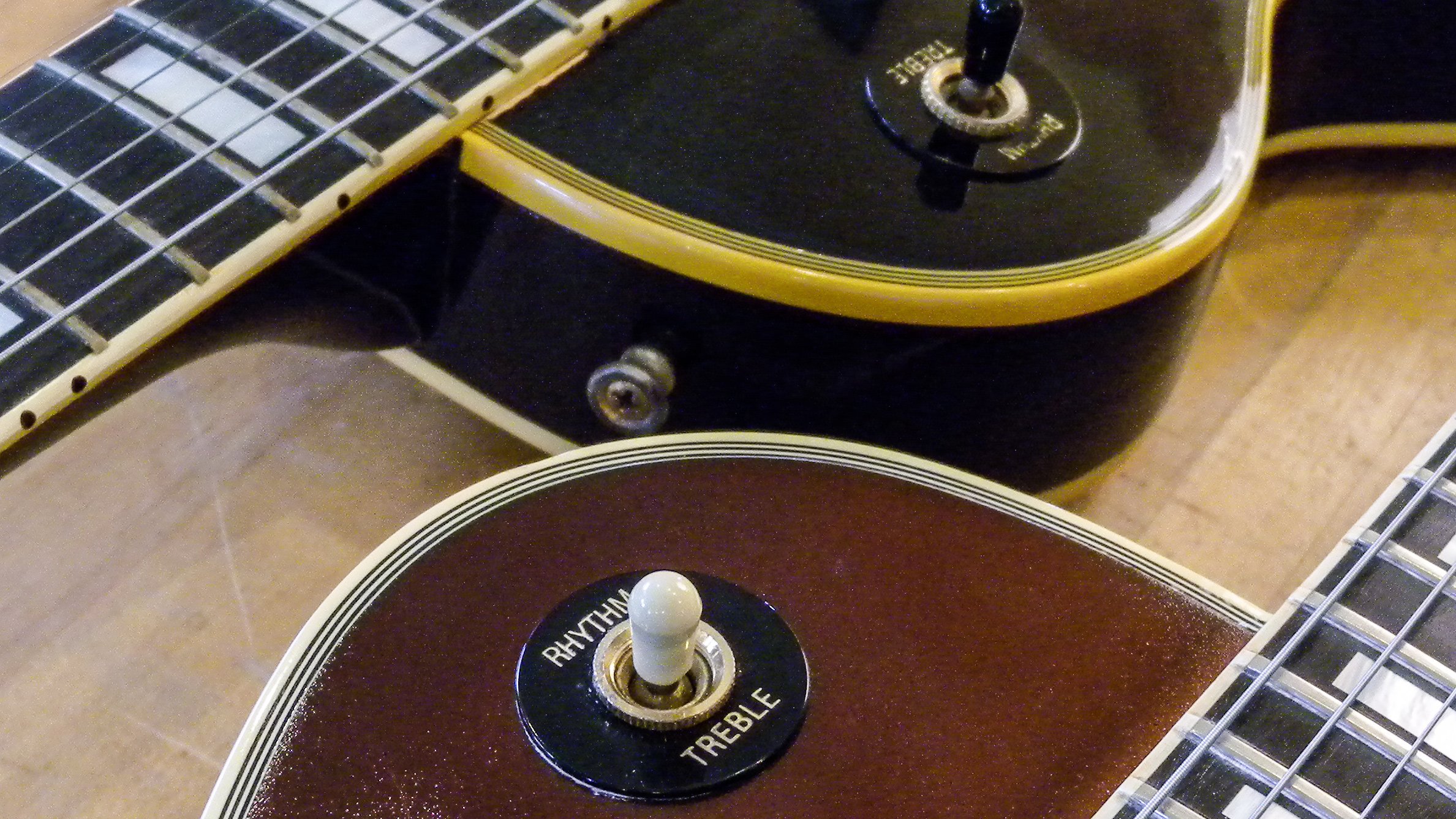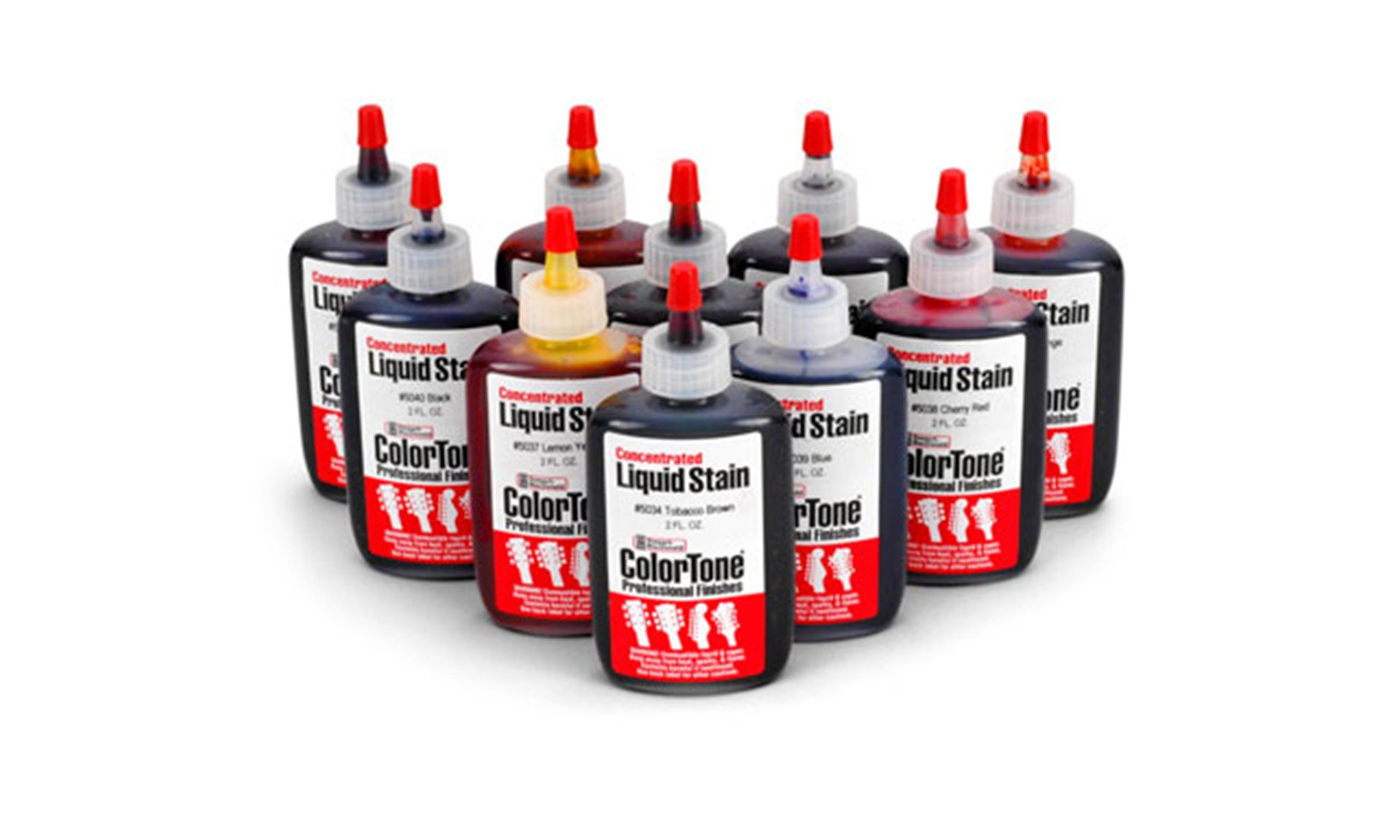ColorTone Liquid Stains
Spectacular sunbursts, vintage tints and head-turning modern colors: ColorTone concentrated stains mix with virtually any finish, and are formulated specifically for luthiers.
They're accurate and authentic stringed instrument colors, as researched and specified by our own guitar finishing experts—not the generic furniture colors you'll find at other suppliers.
These concentrated grain-enhancing stains are economical; a little goes a long way. Reduce them with alcohol or water to give bare wood beautiful fade-resistant color, without hiding the grain. They're versatile, too. For applying transparent color-tinted coats, ColorTone stains can be mixed directly into virtually any finish: nitrocellulose lacquer, shellac, waterbase finishes, and catalyzed varnishes or lacquers.
Available in 2-ounce bottles, in the most popular stringed instrument colors.
Make wood grain come alive!
ColorTone liquid stains are lightfast metal-complex dyes that can be mixed for practically any desired intensity. Unlike off-the-shelf hardware store stains, they're formulated for guitar finishing. One 2-ounce bottle makes two quarts of stain at normal concentration. Because they're liquids, they can be measured precisely for critical color matching—a plus for refinishing and touchup work. (See our handy stain mixing cups and pipettes.)
Questions about finishing? Look here first:
Guitar Finishing Step-By-Step
Frequently Asked Questions
What’s the shelf life once a bottle is opened, and how should I store the stain?
ColorTone Liquid Stains are concentrated metal-complex dyes dissolved in a glycol base, so they don’t “skin over” or dry out the way lacquer does. When the cap is closed tightly and the bottle is kept in a cool, dark cabinet (above freezing, below 90 °F / 32 °C) the colorants remain stable for many years. Simply shake before each use; if any crystals form after long storage, set the bottle in warm water and stir until they dissolve.
Will the dye migrate or “bleed back” into my clear coats, especially under water-base finishes?
Once the stained wood has dried, a light wash-coat of dewaxed shellac or vinyl sealer locks the color in place and prevents re-activation. Nitrocellulose lacquer flashes off too fast to lift the dye, but water-base and catalyzed urethanes can re-wet it if sprayed heavily. Mist on two light “tack” coats first, let them flash 30 minutes, then proceed with normal wet coats—no color shift or bleed-through will occur.
How do I prevent blotching on woods that stain unevenly, like maple or sapele?
Uneven absorption is a grain issue, not a dye issue. Two proven tactics:
1. Dilute first, build color gradually
Mix the stain 2 parts solvent (see below for options) to 1 part stain and wipe it on; the lighter mix soaks in more evenly. Add additional coats or stronger mixes until you hit the shade you want.
- Water – longest open time, lets you re-wipe overlaps, but it can raise grain (light scuff-sand after it dries).
- Denatured alcohol – flashes fast, raises the grain far less than water, handy when you need to sand and clear-coat the same day.
- Lacquer thinner – use when you’re going straight into a nitrocellulose finish; it dries almost instantly, so work quickly to avoid lap marks.
2. Seal-then-tint
Wipe or spray a very thin wash-coat of dewaxed shellac, let it dry, and scuff-sand. The shellac equalizes surface porosity; you then build color by adding the same stain to your clear coats.
- For nitro or shellac topcoats, thin the stain with alcohol or lacquer thinner to keep the film crystal-clear.
- For water-base finishes, thin with distilled water or add the dye directly to the finish itself.
- Always test on scrap first—some water-base clears may re-wet the underlying dye unless the shellac layer is fully cured.
With either method you’re letting the wood, not the dye, decide how much color it takes—eliminating blotches and muddy end-grain.
